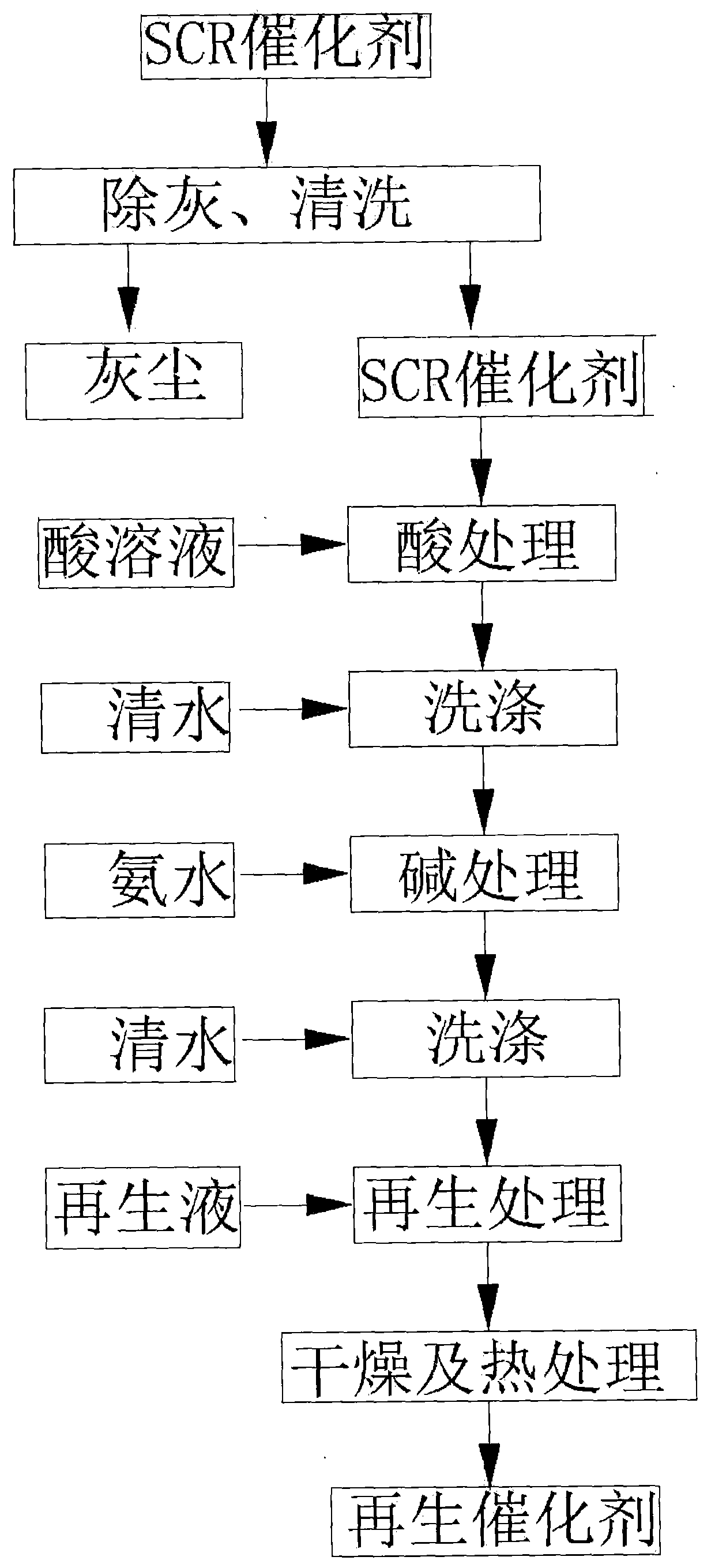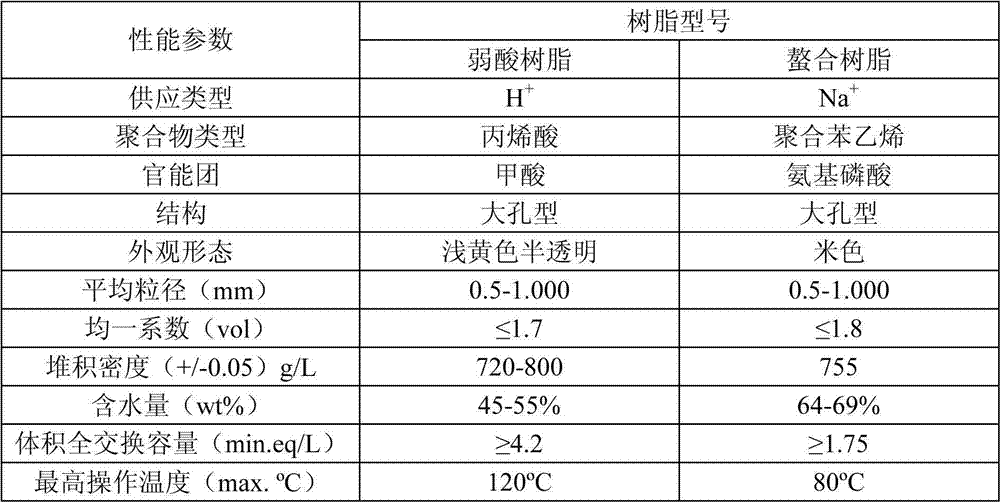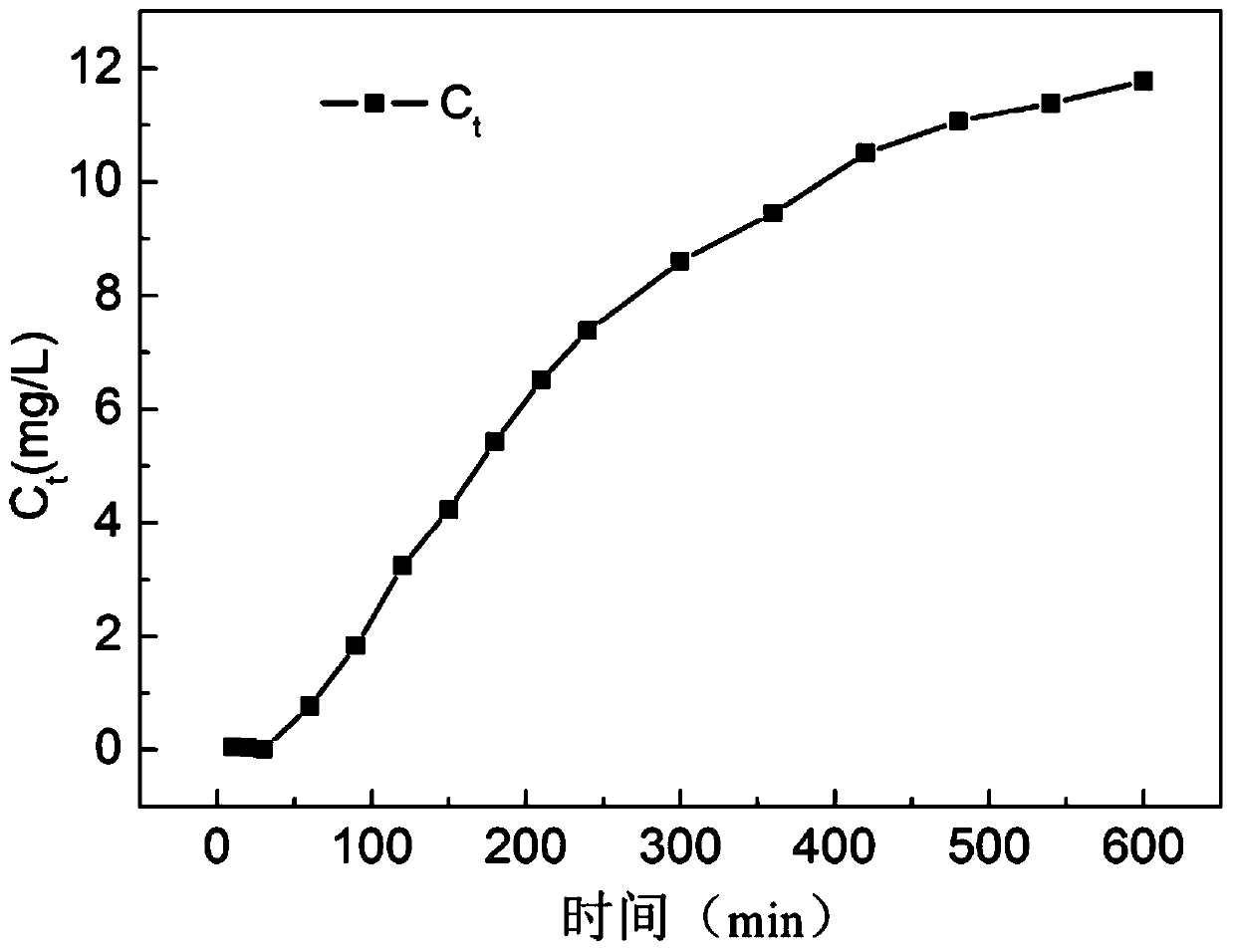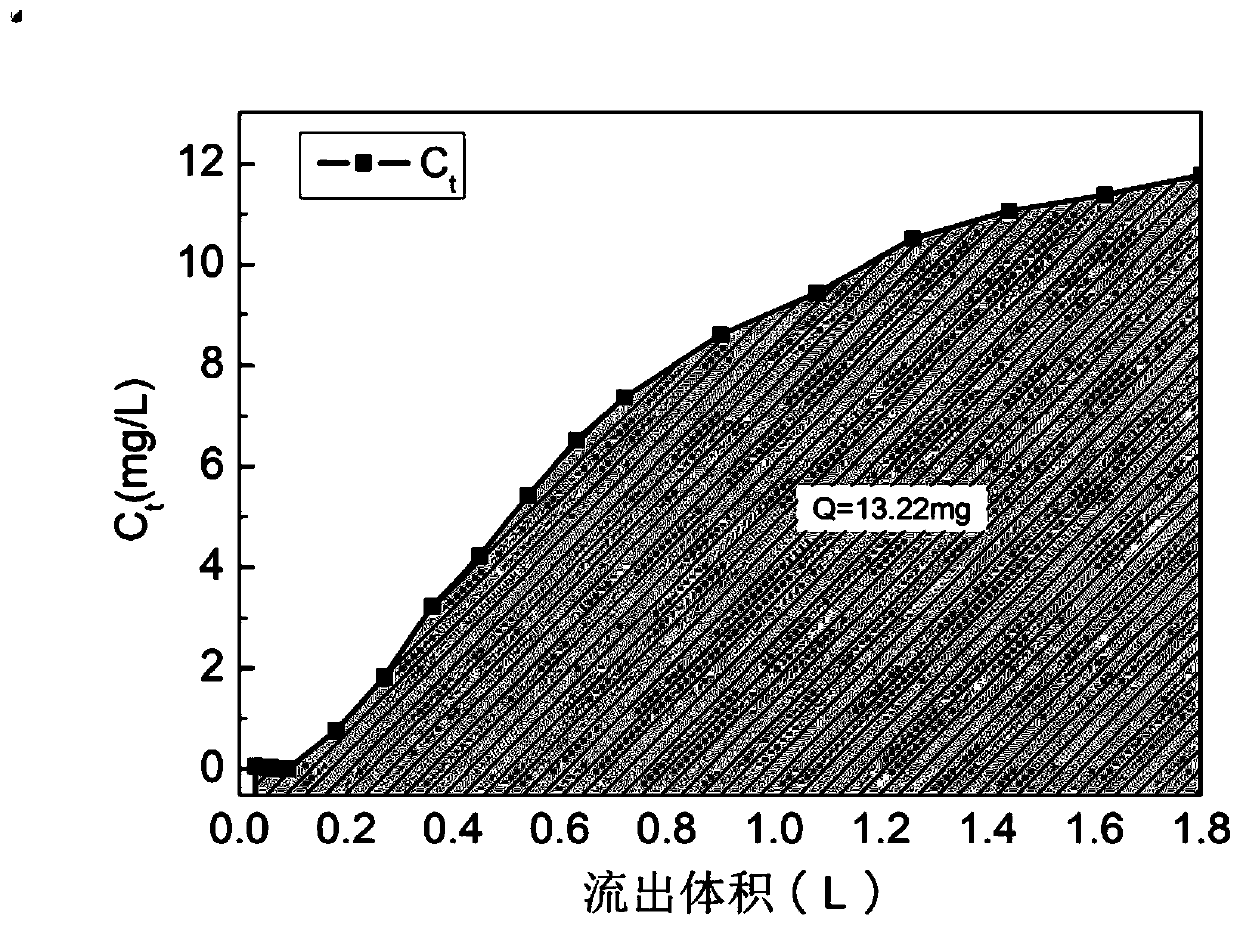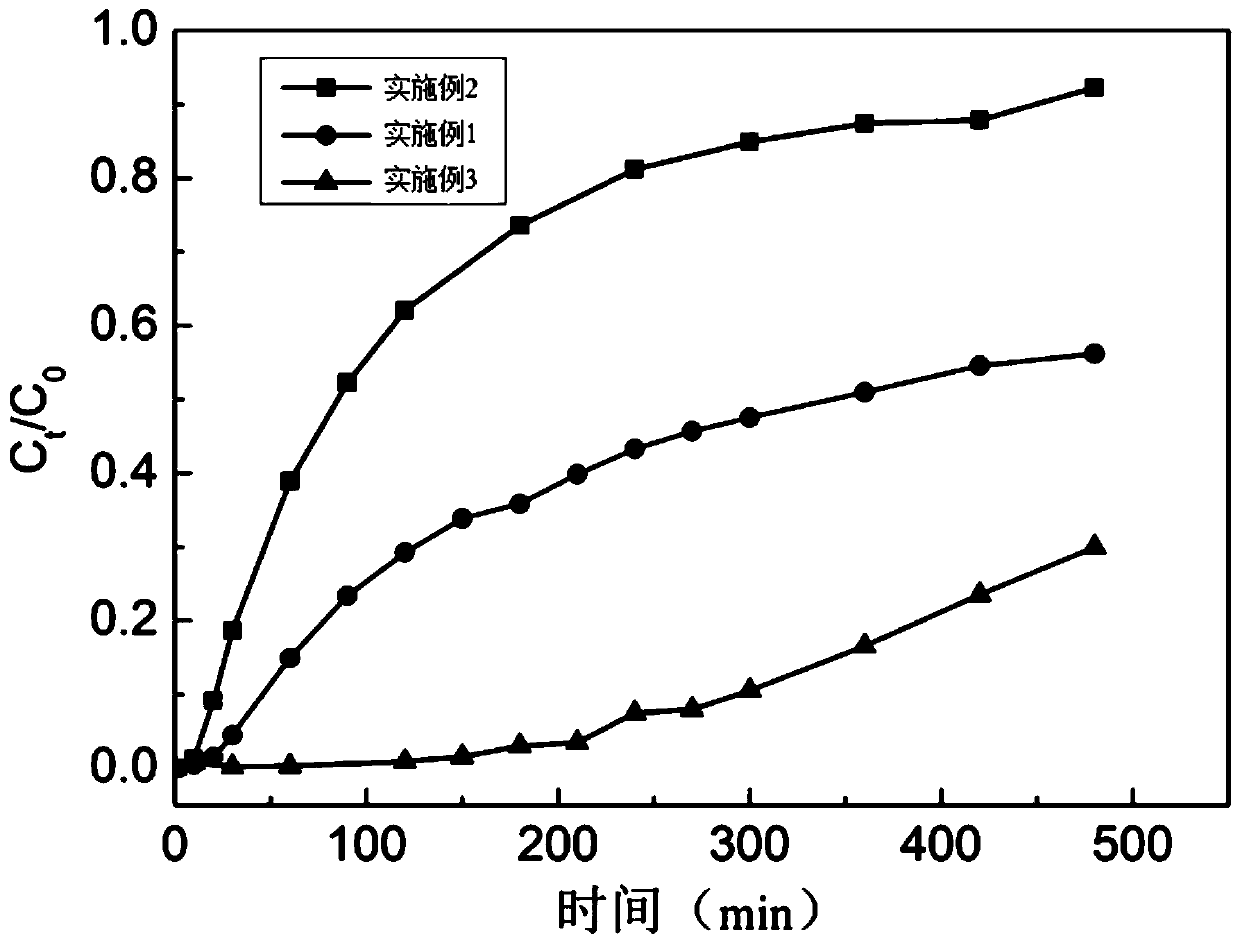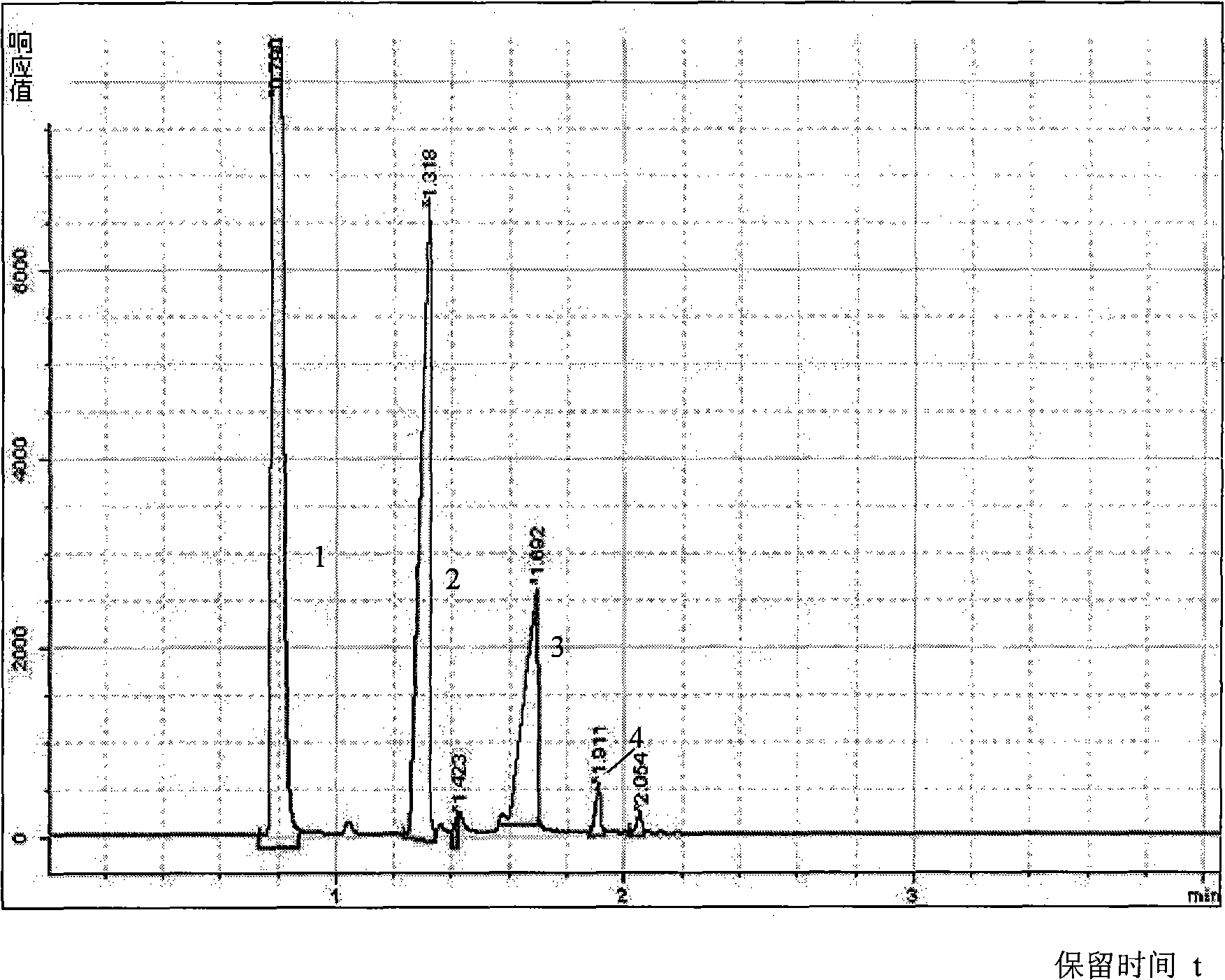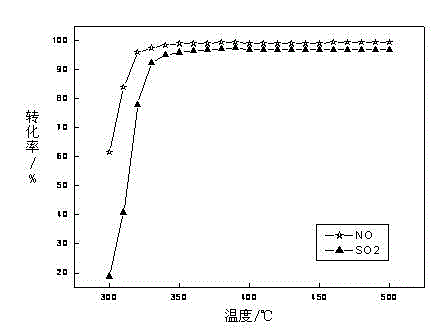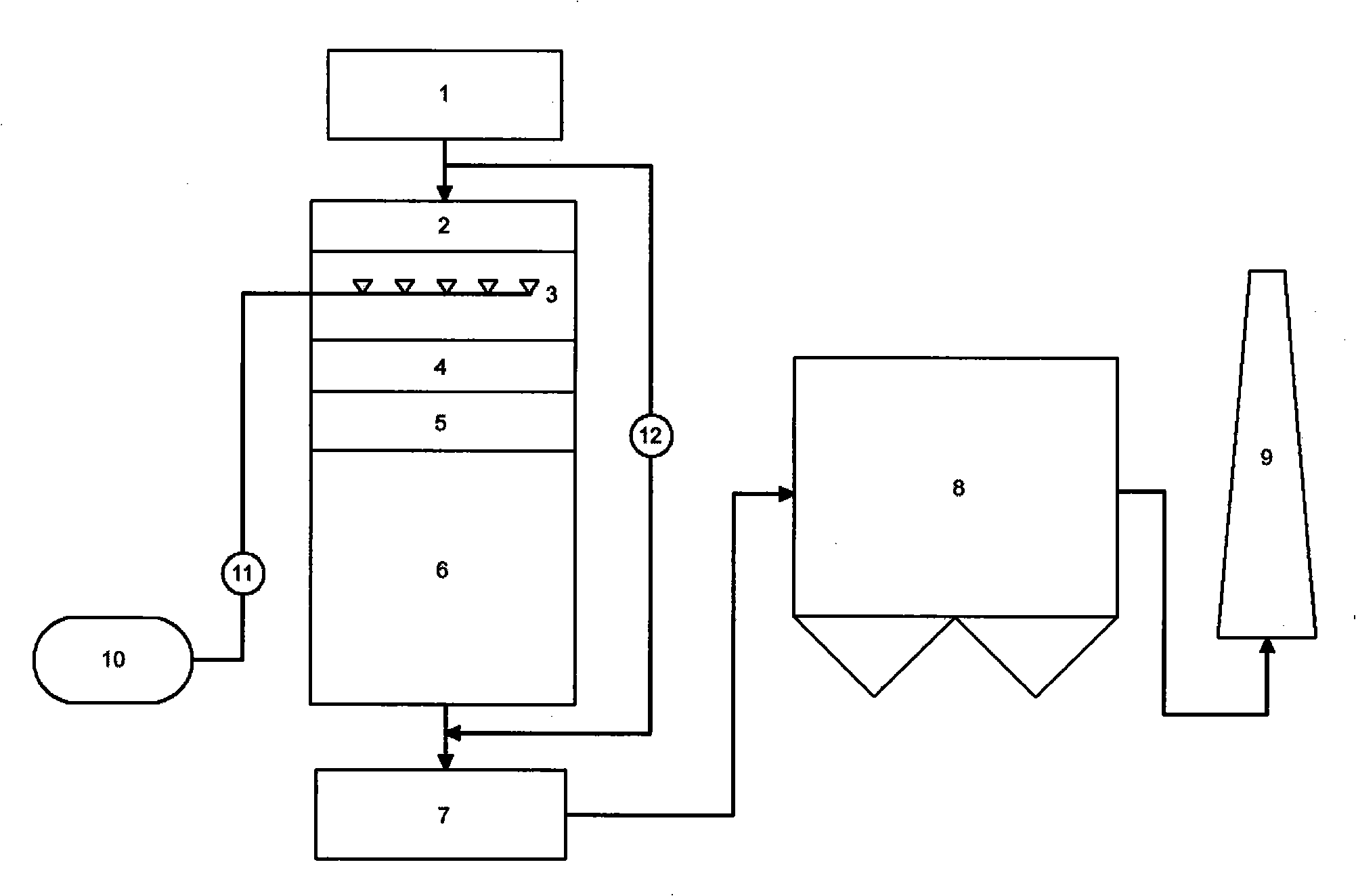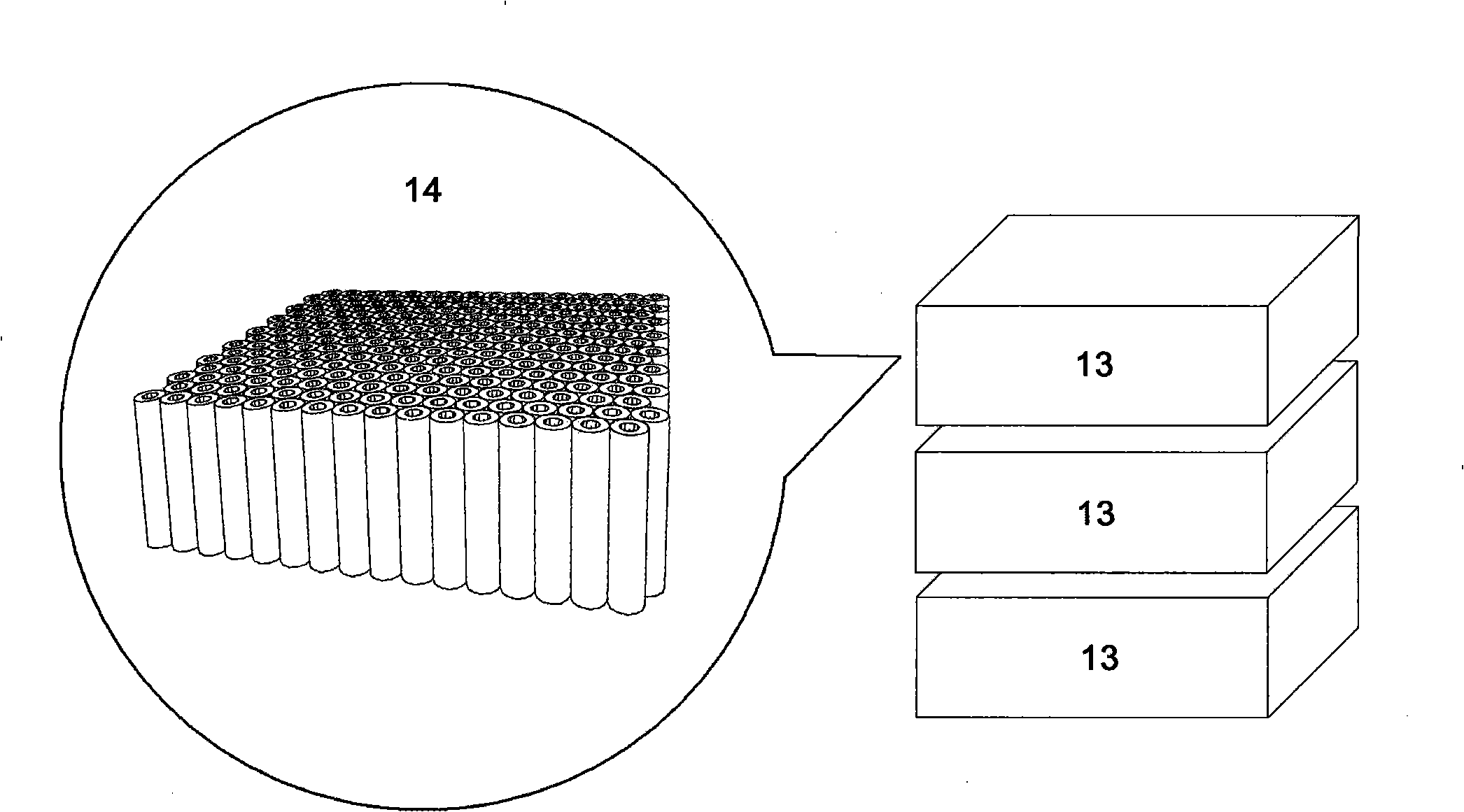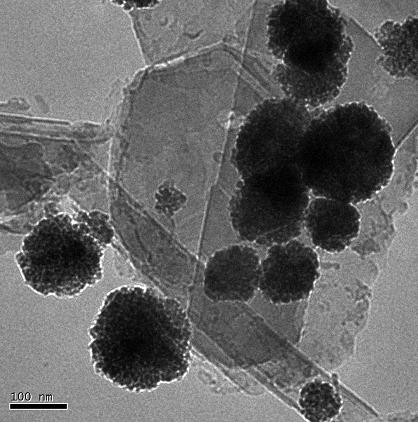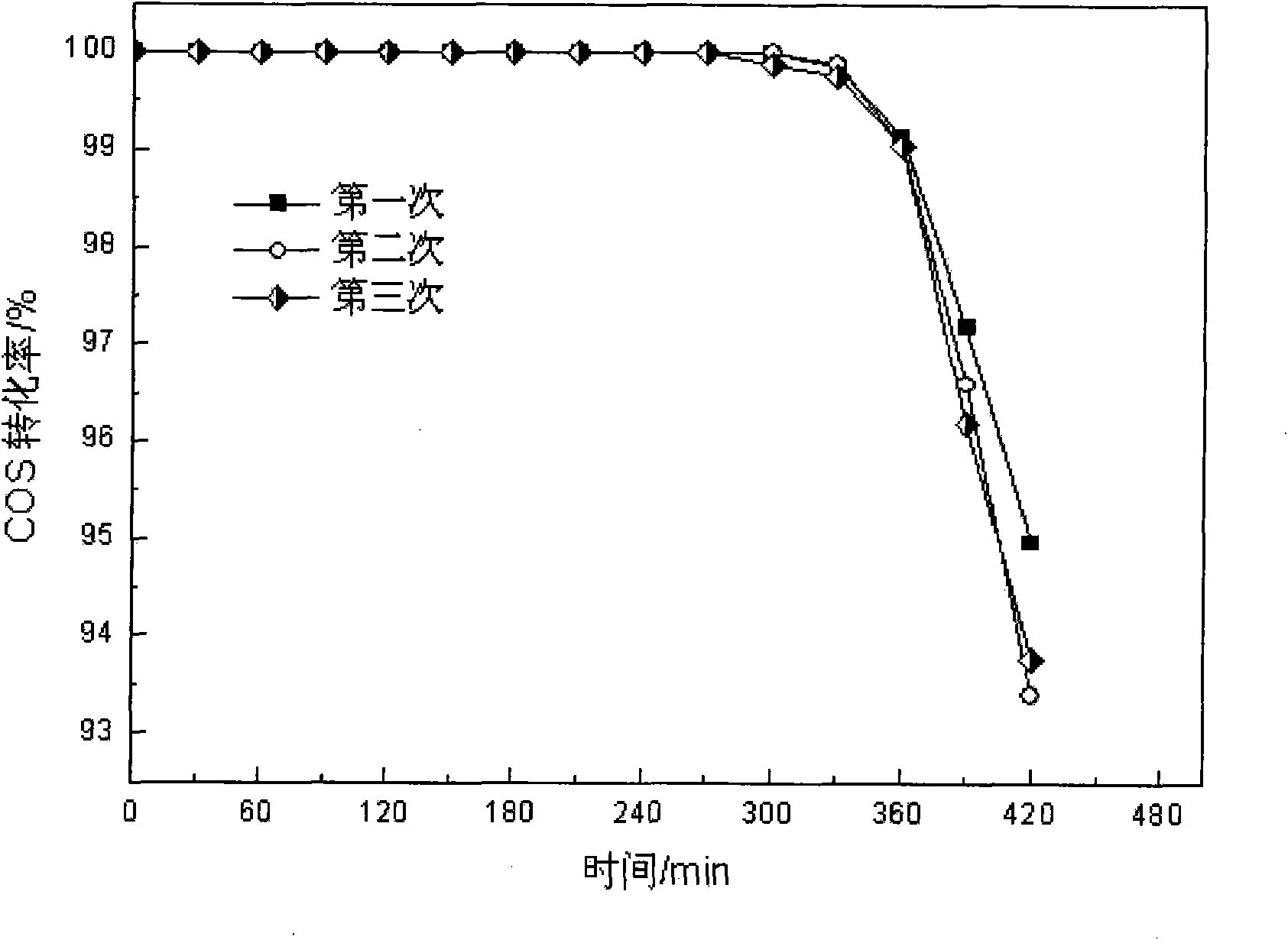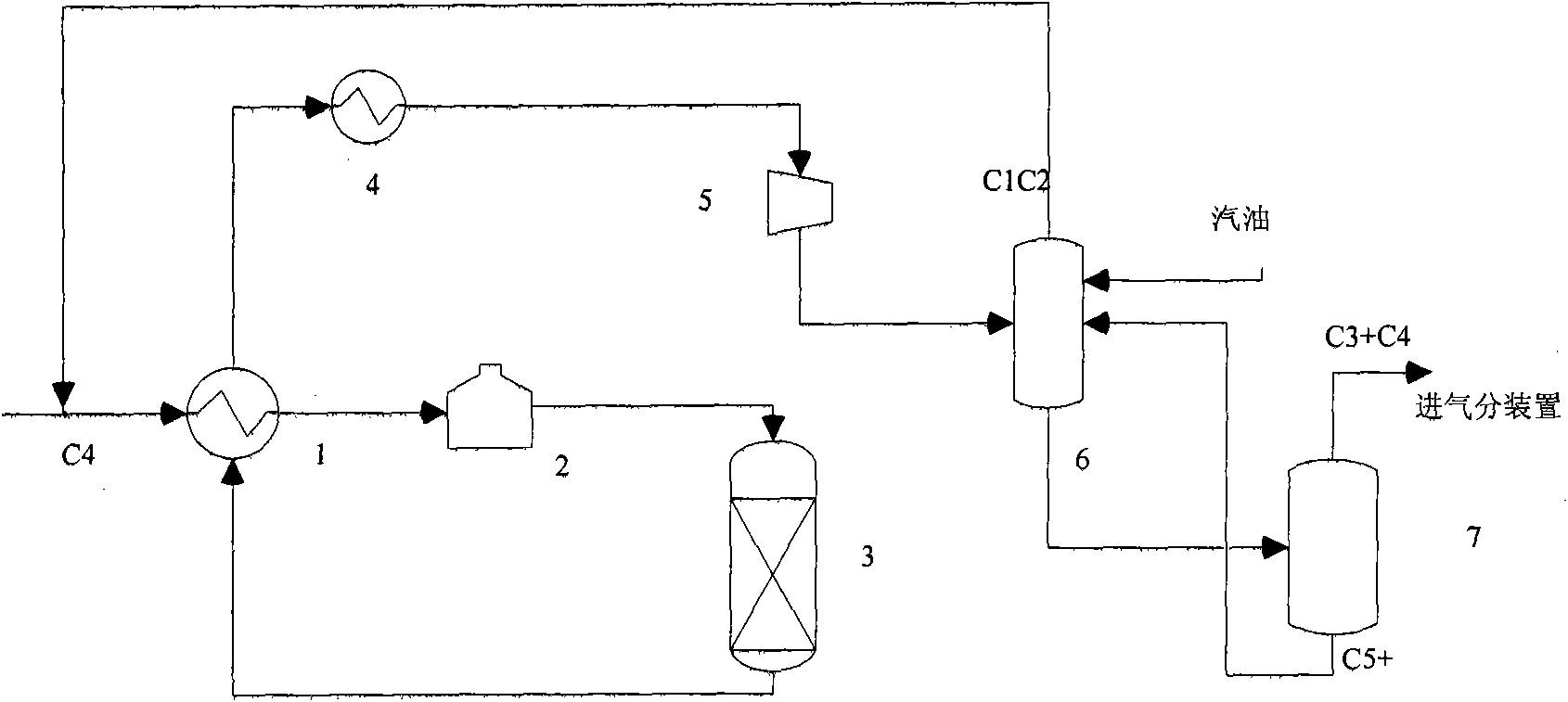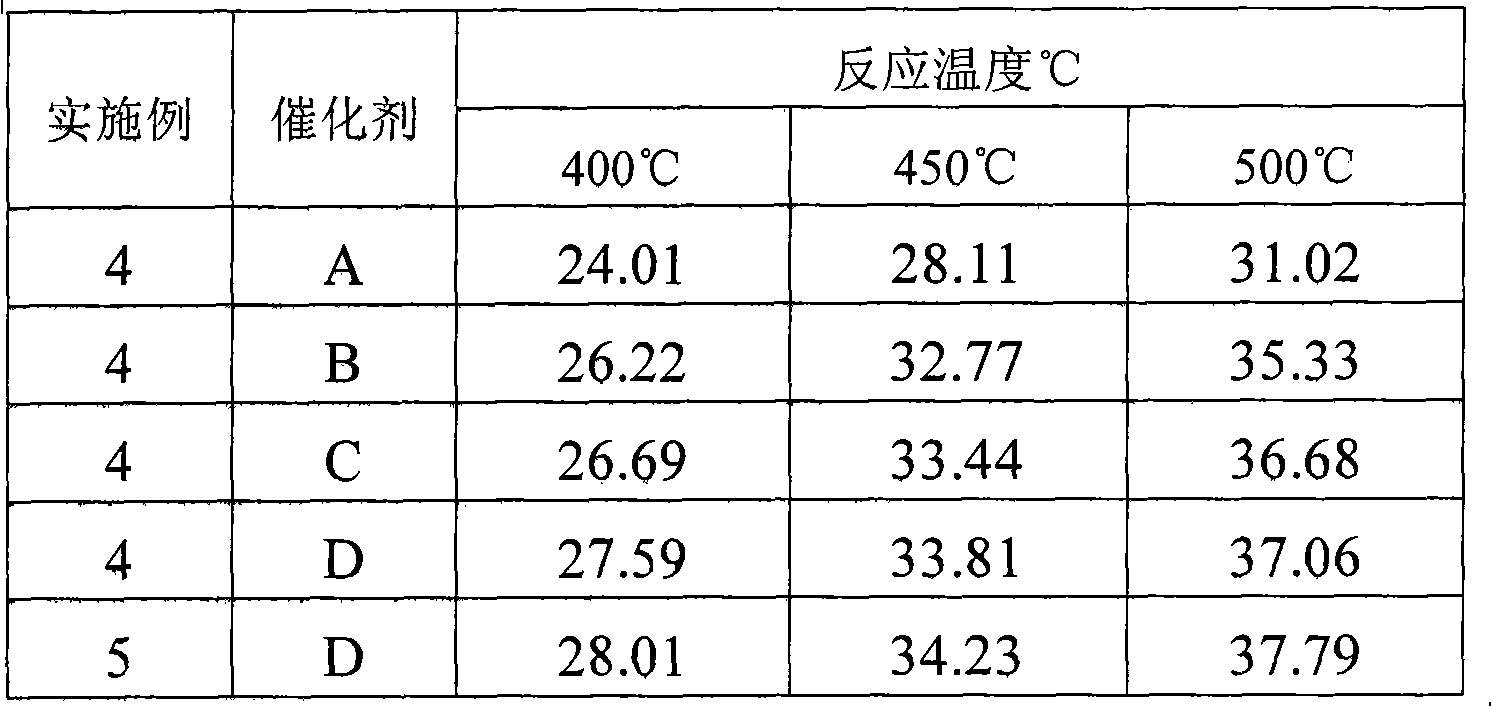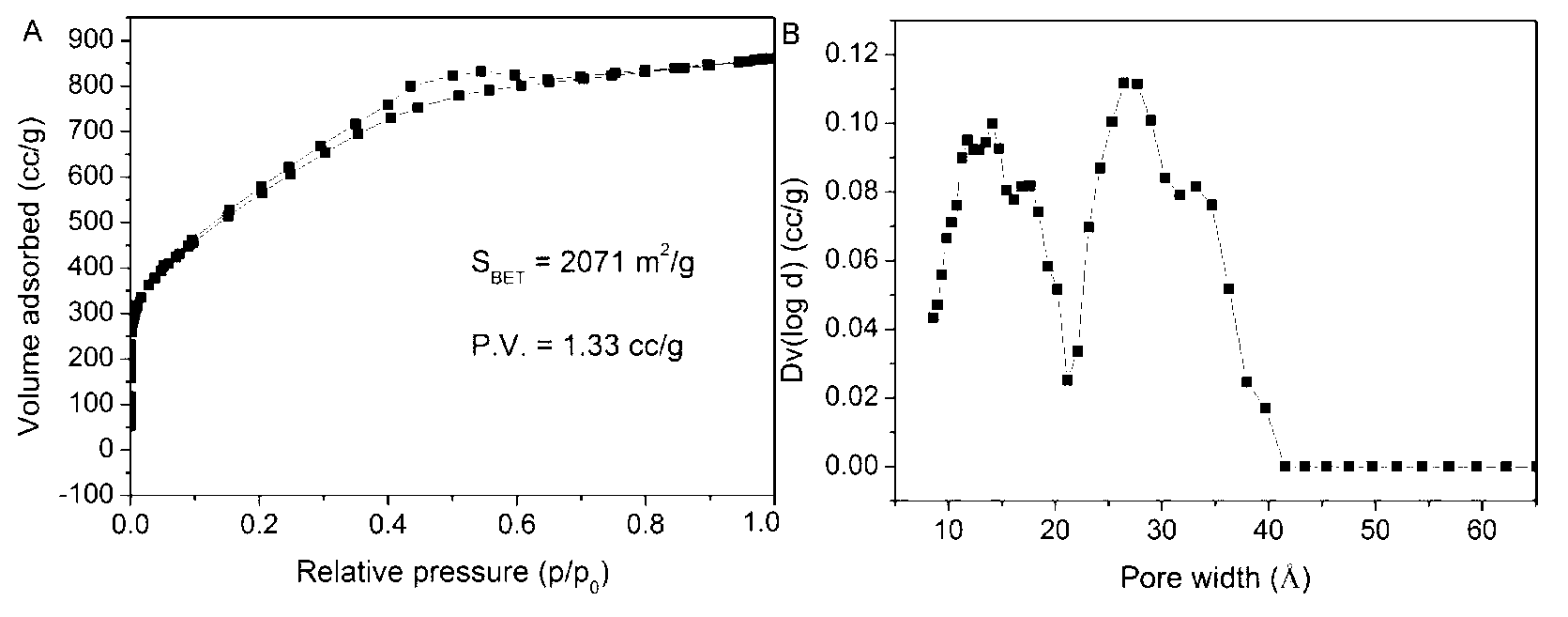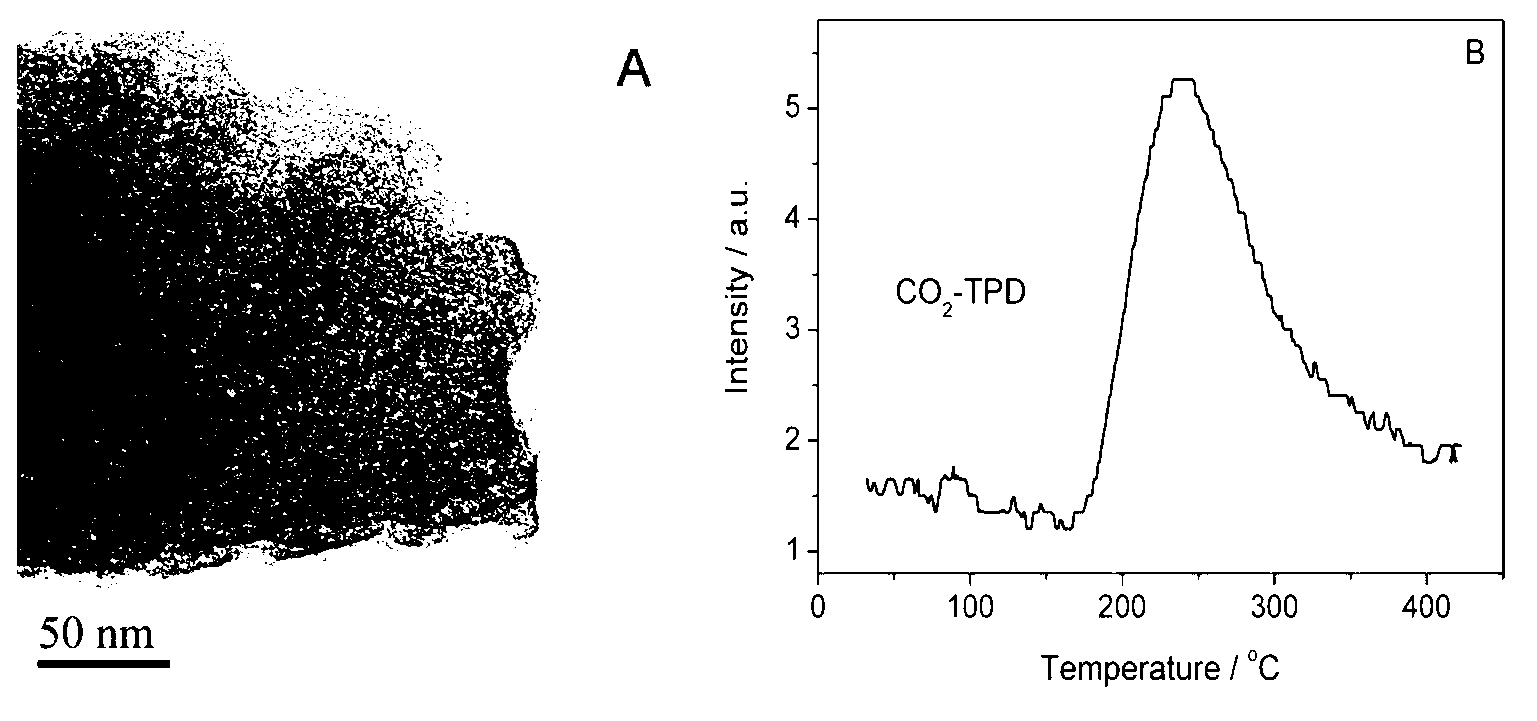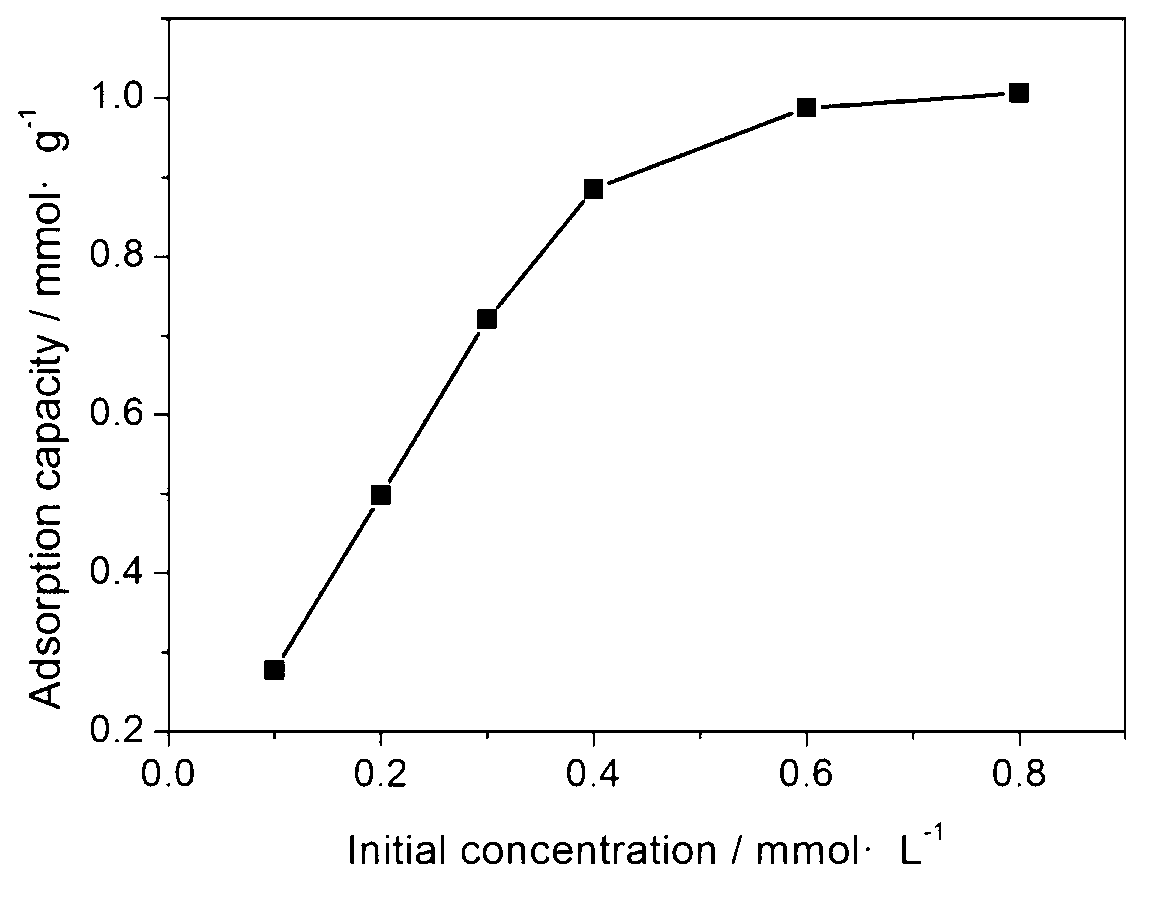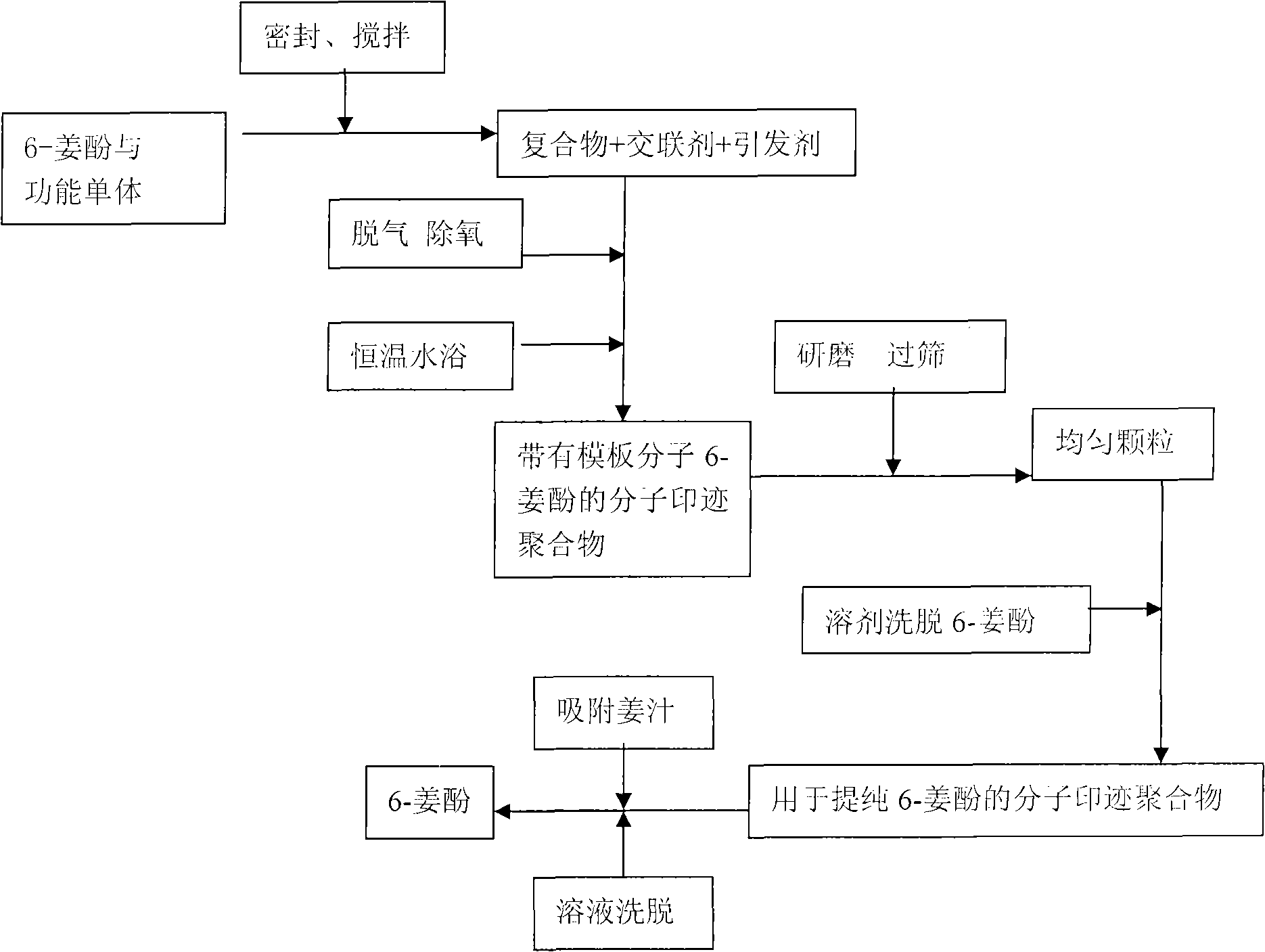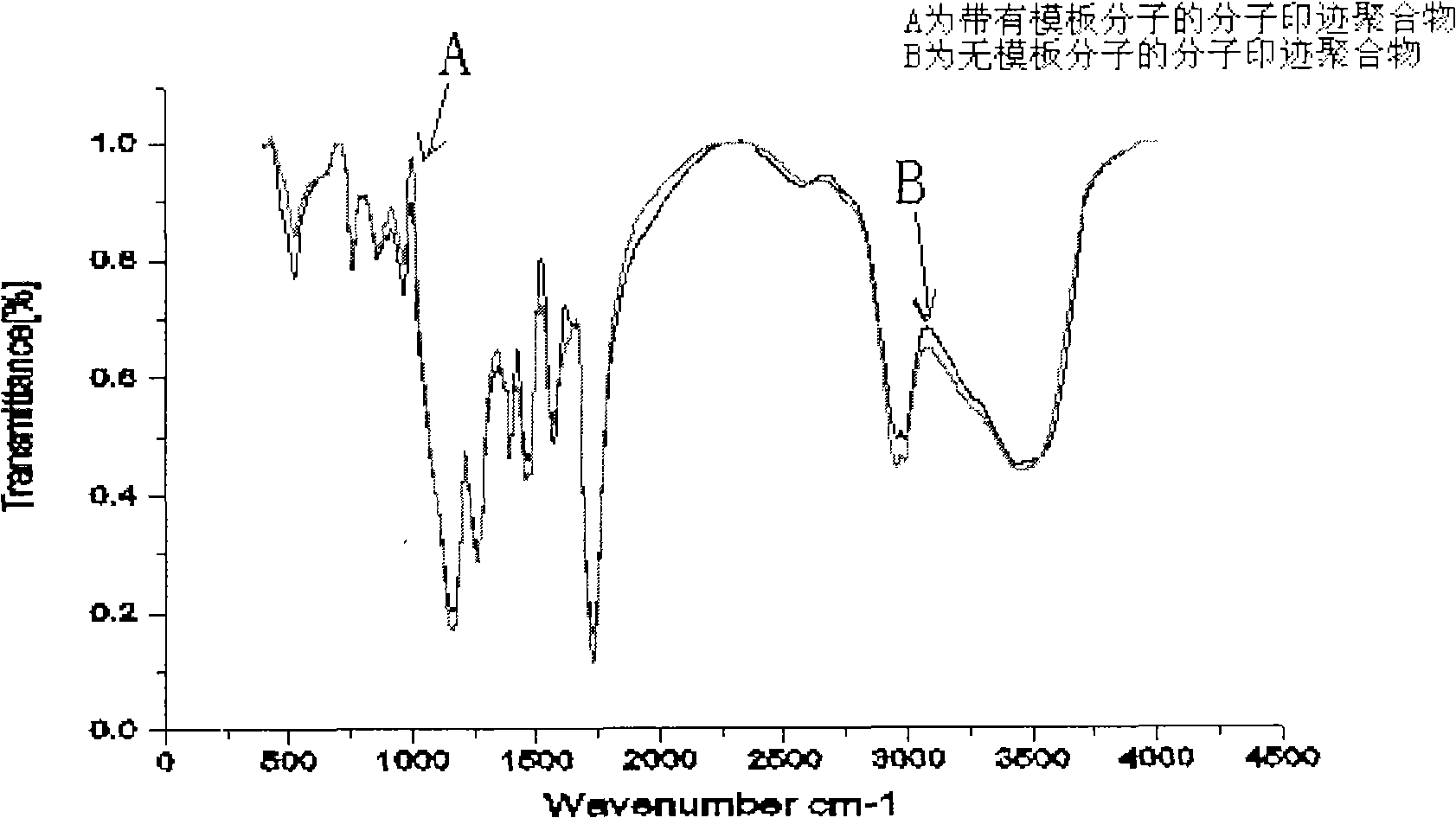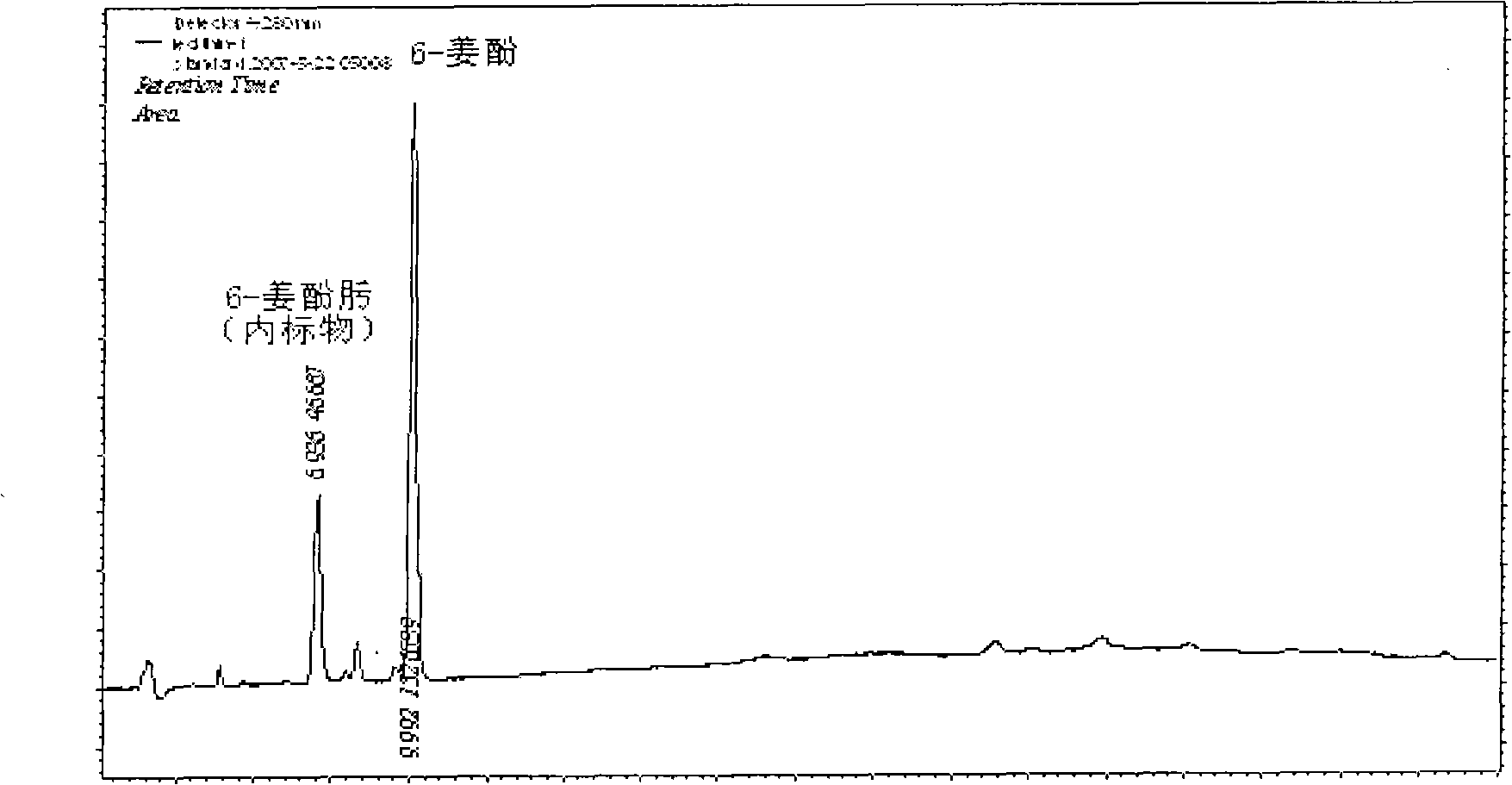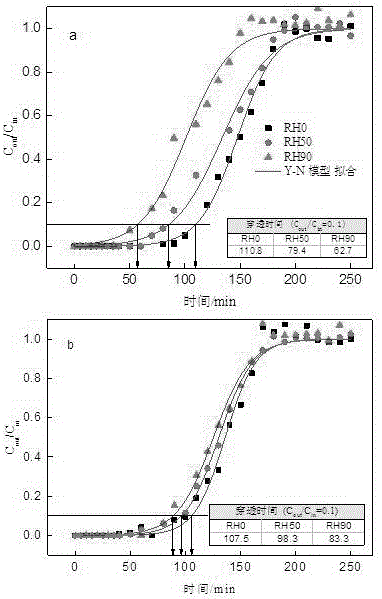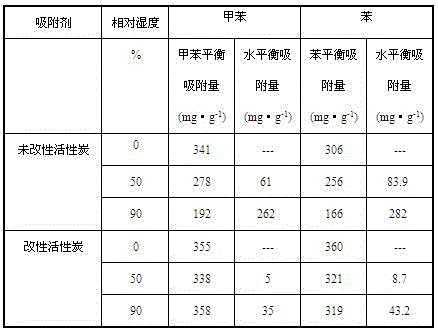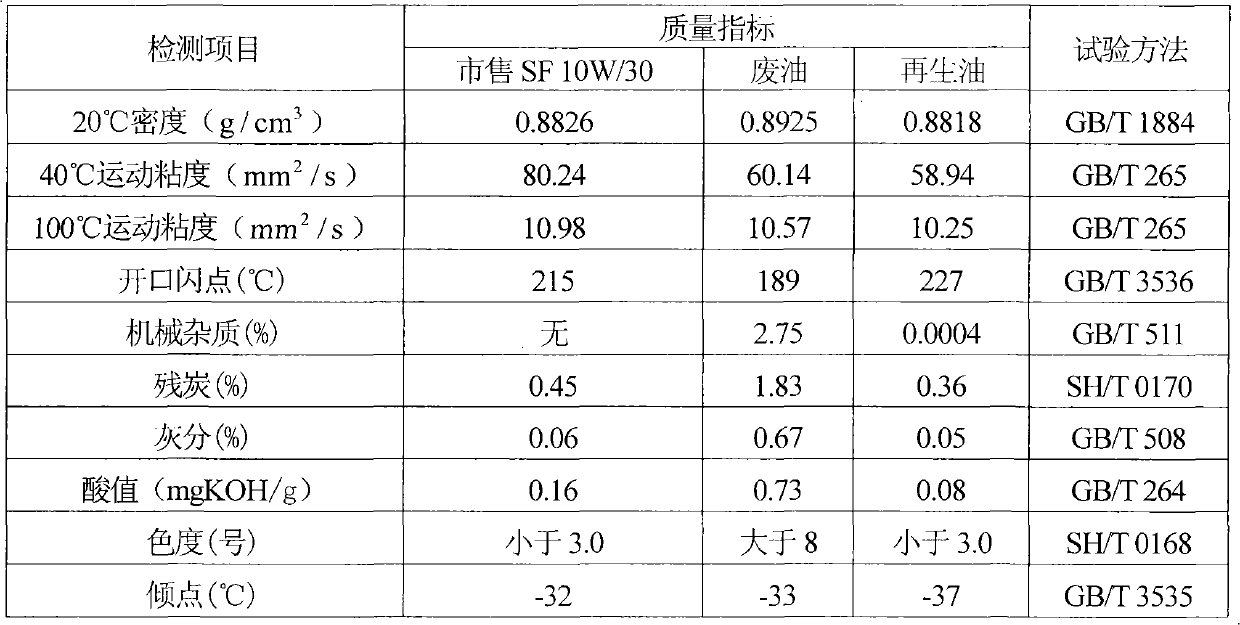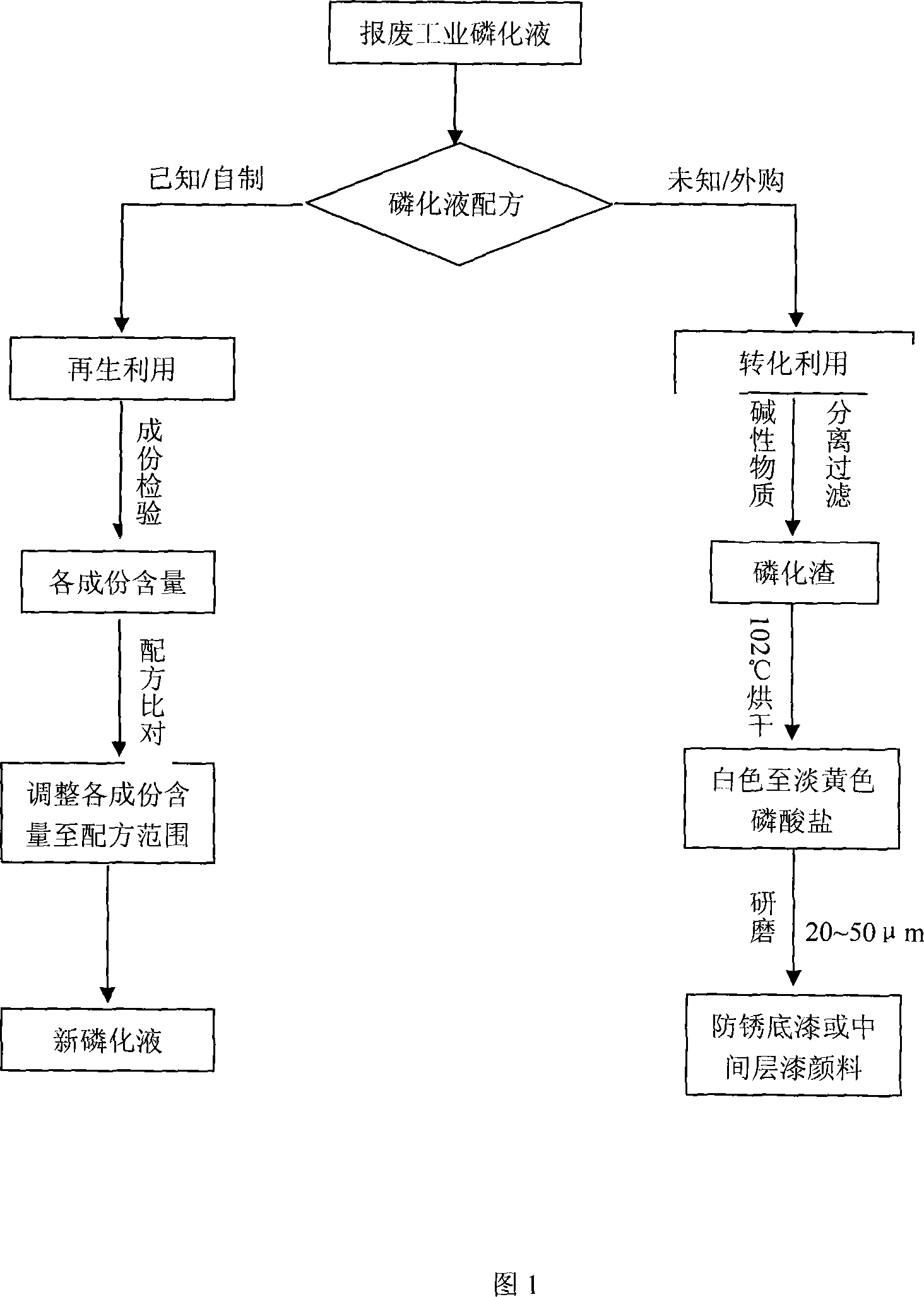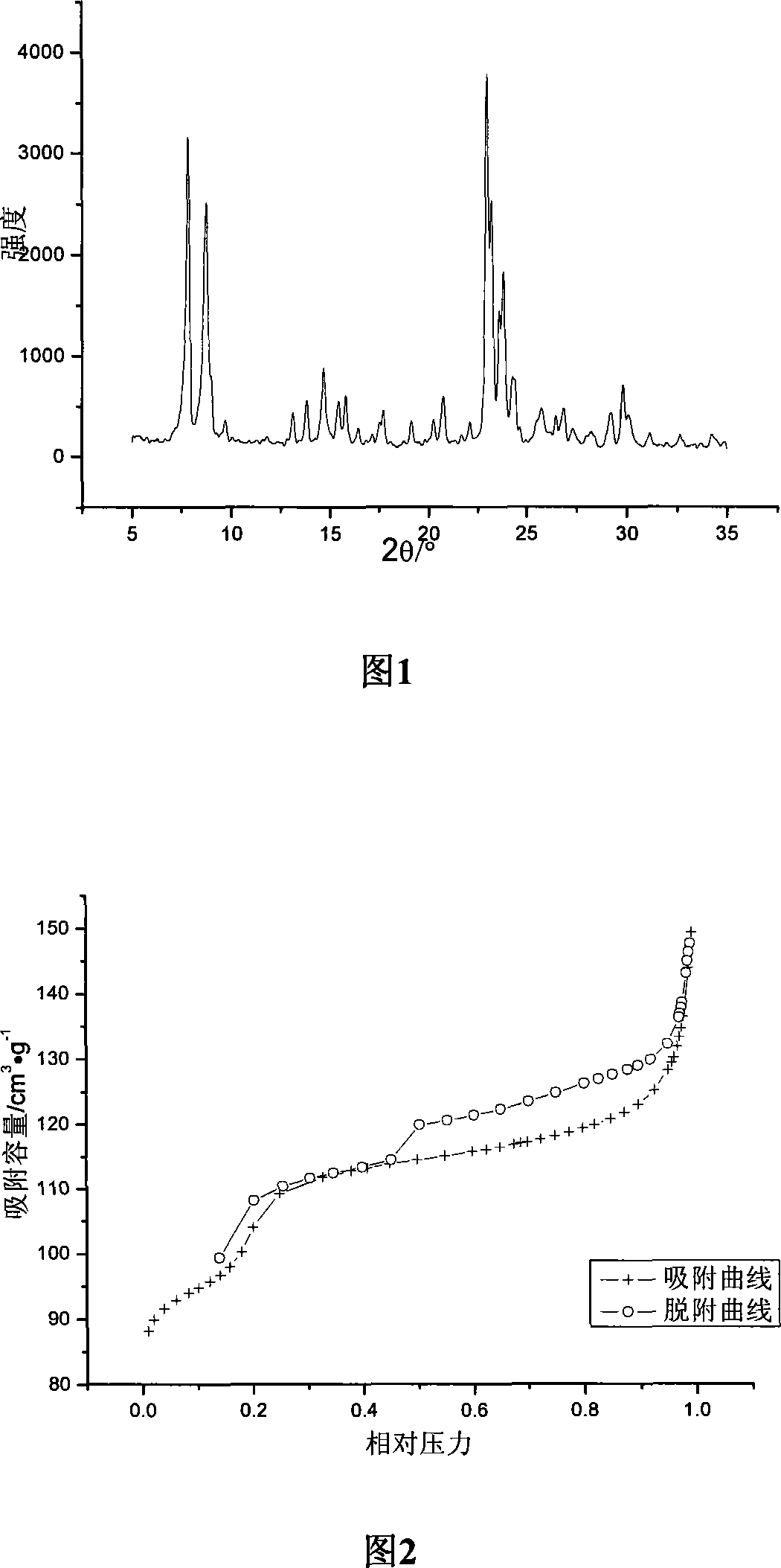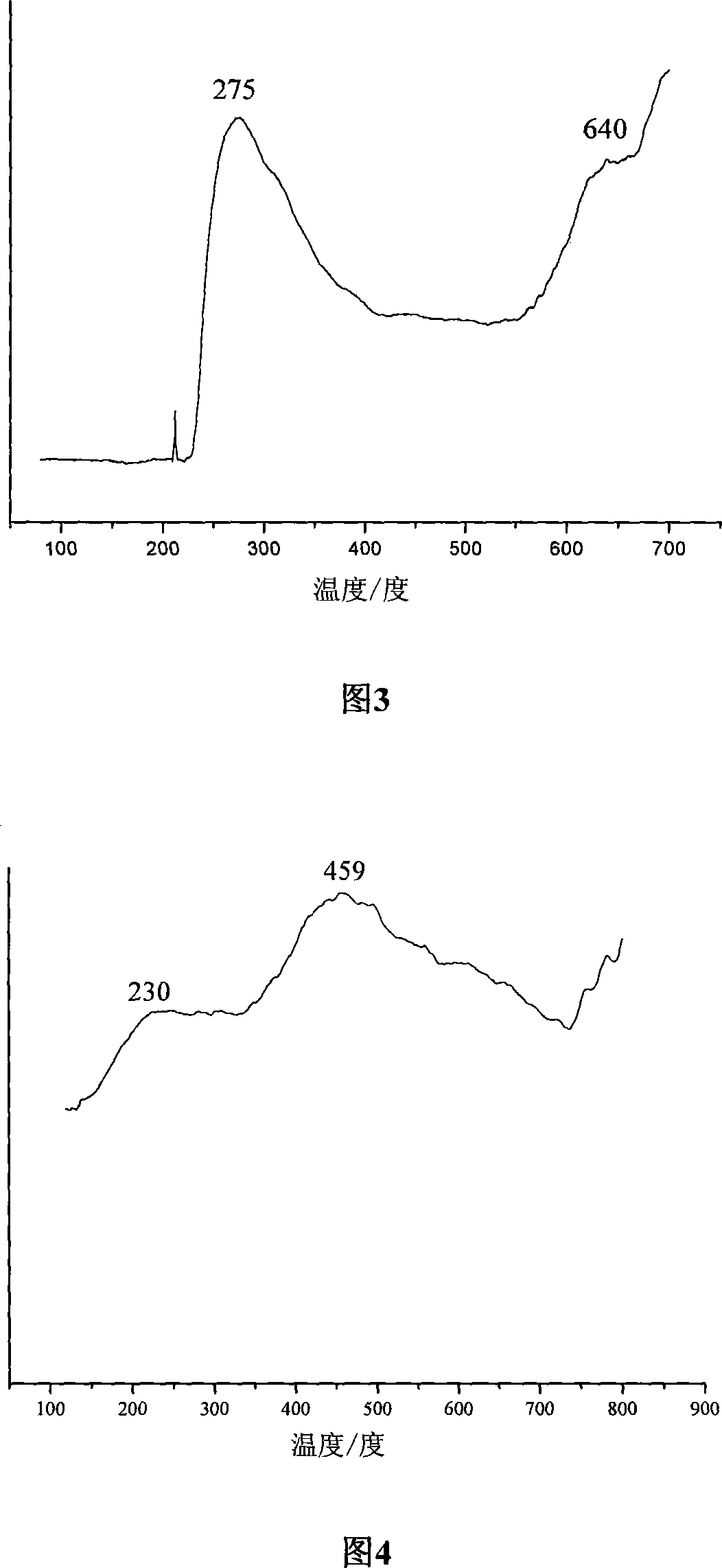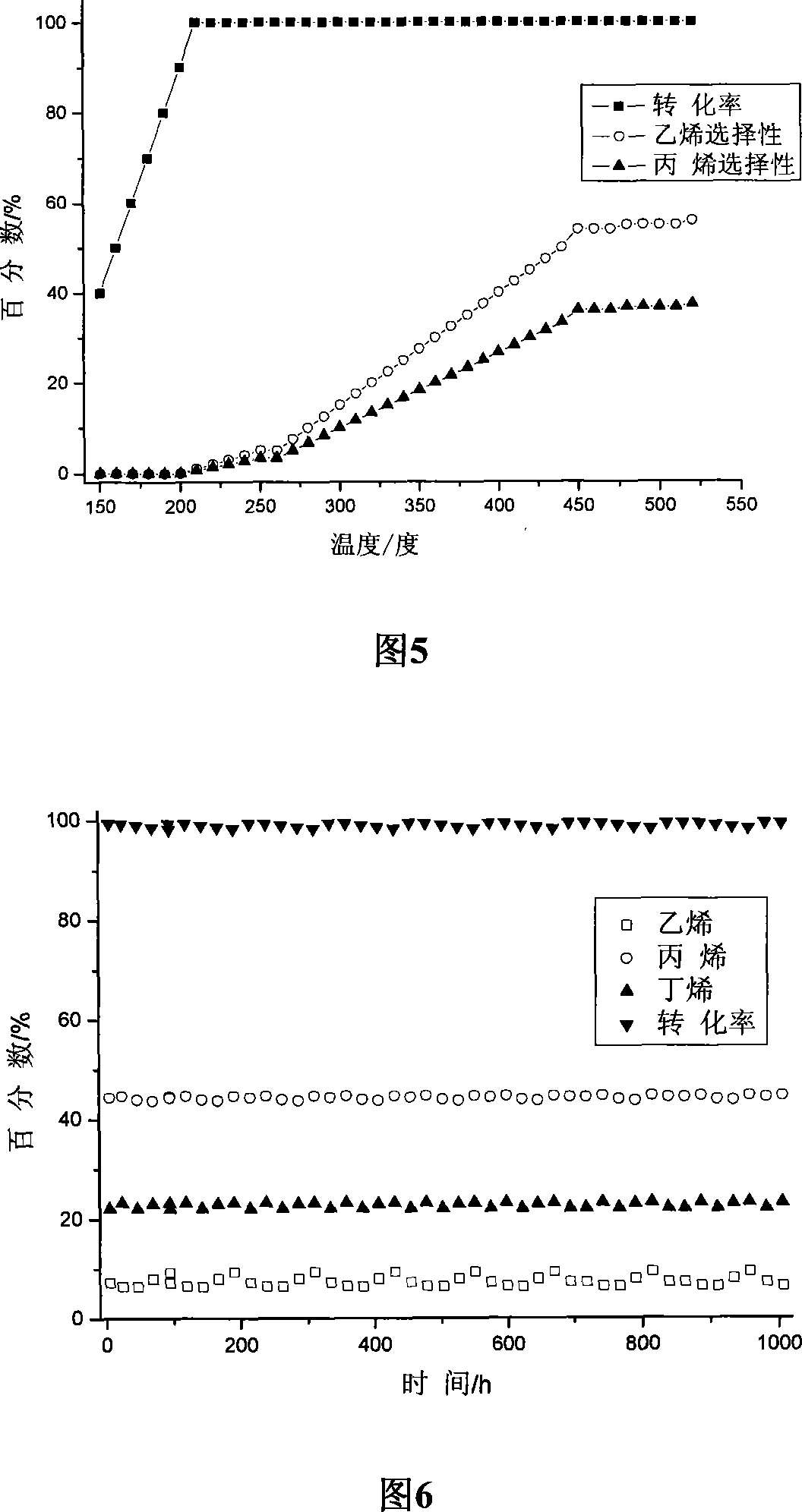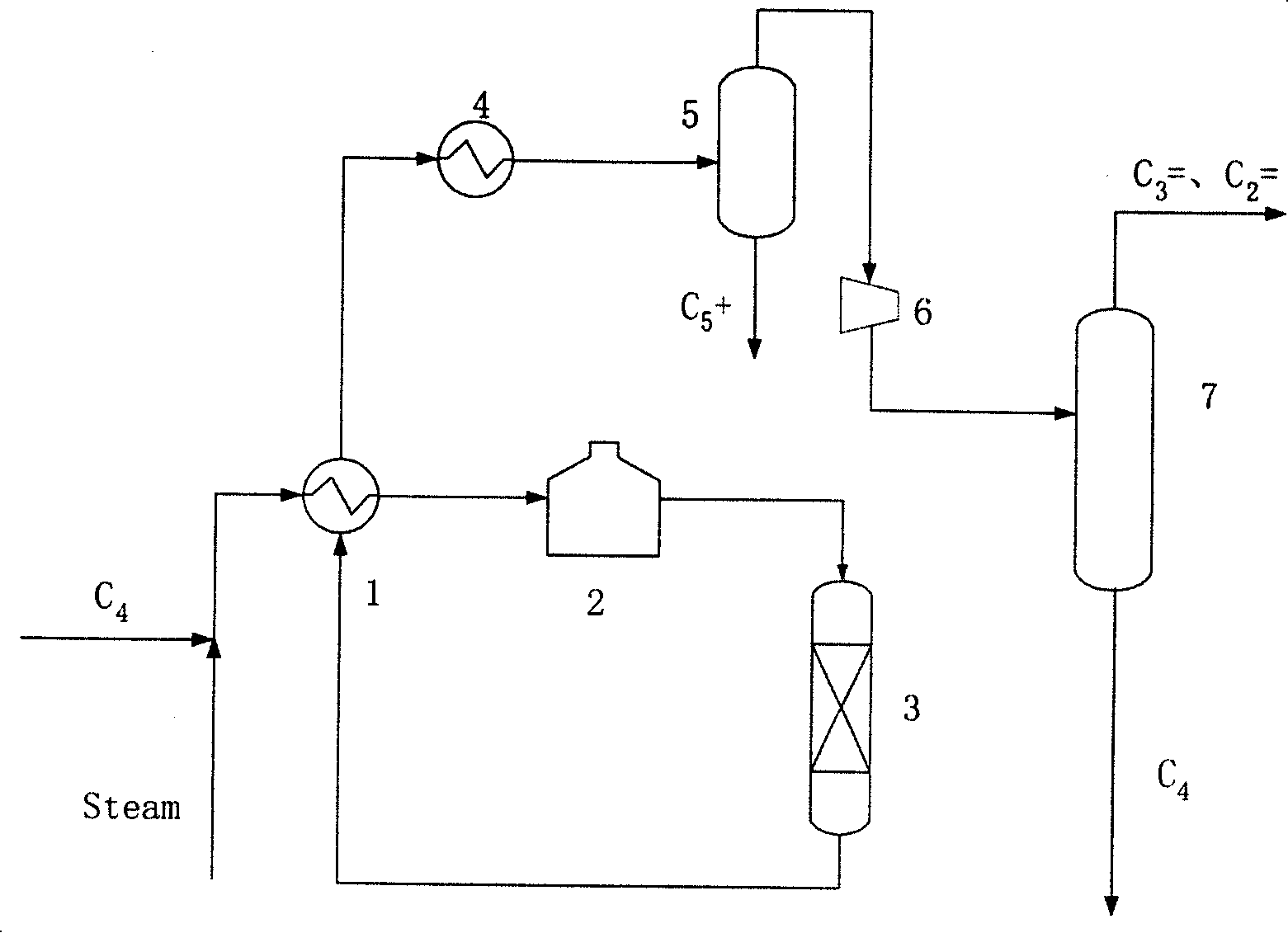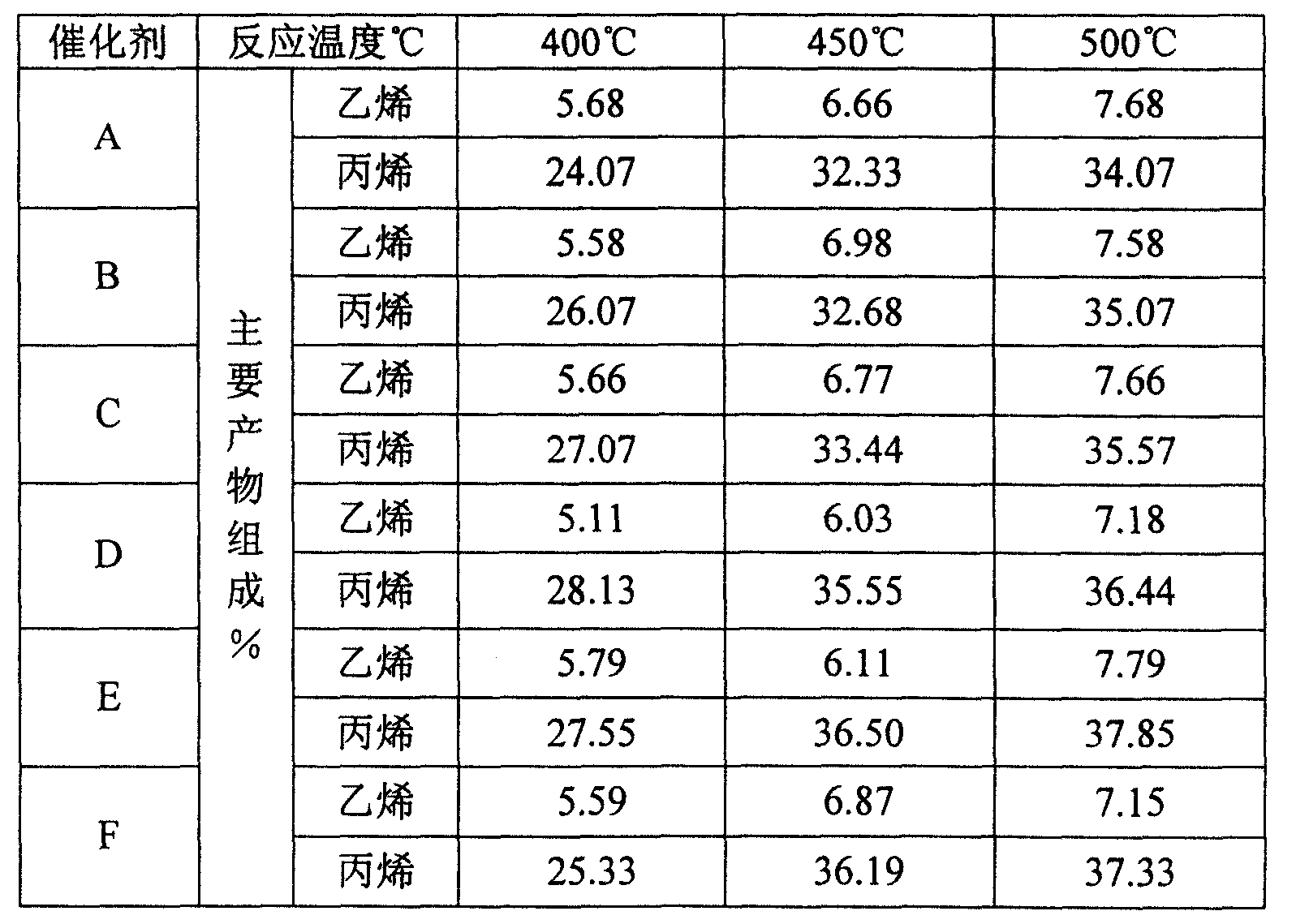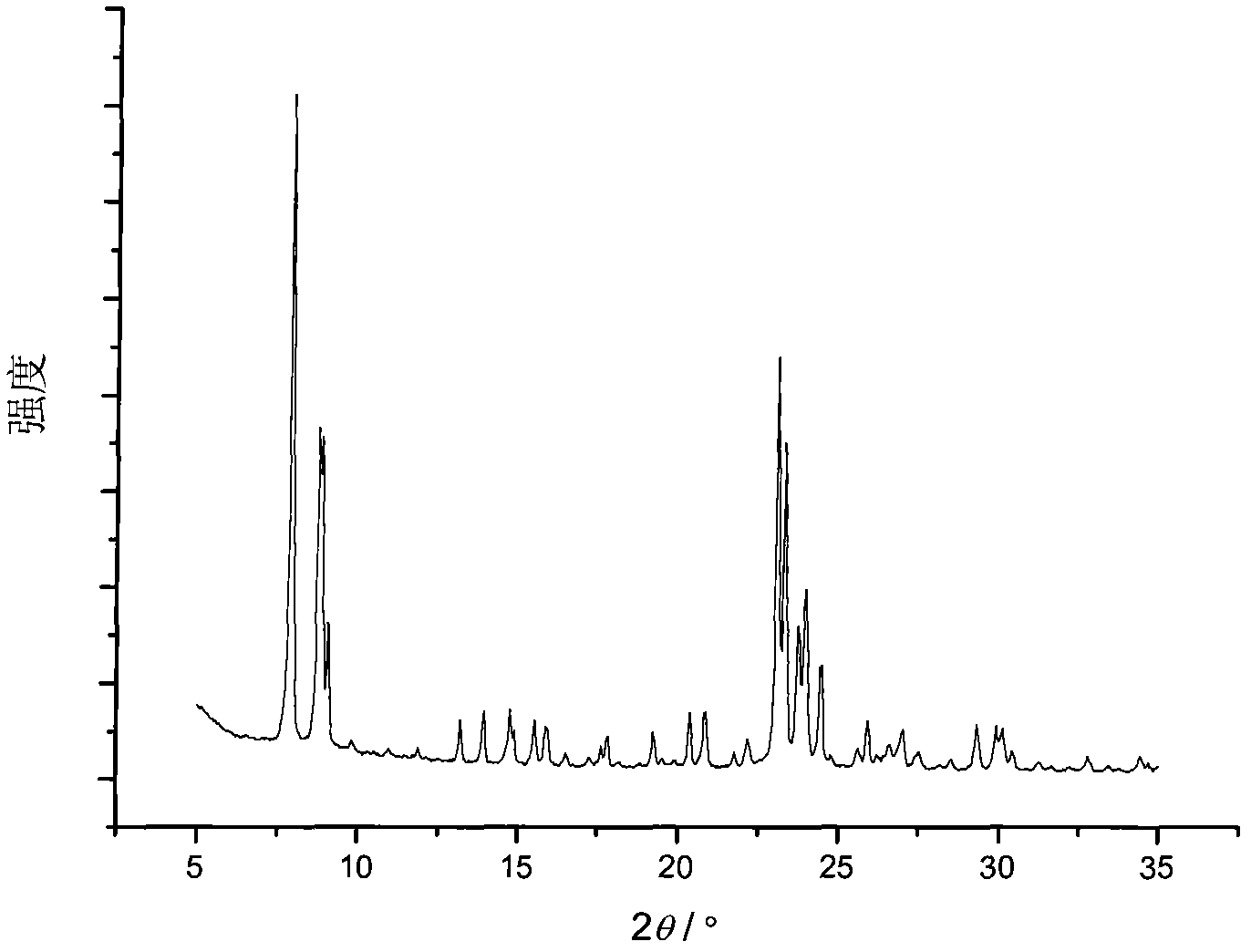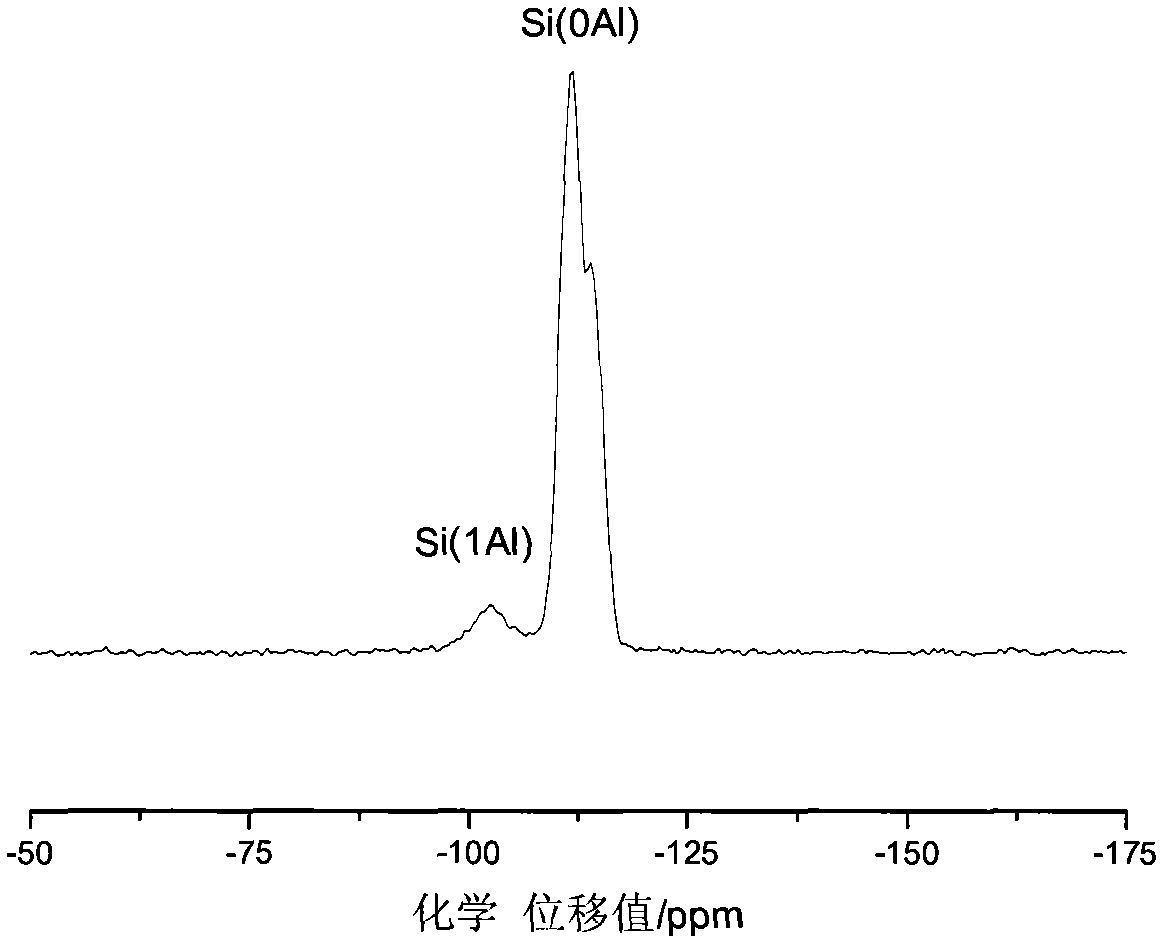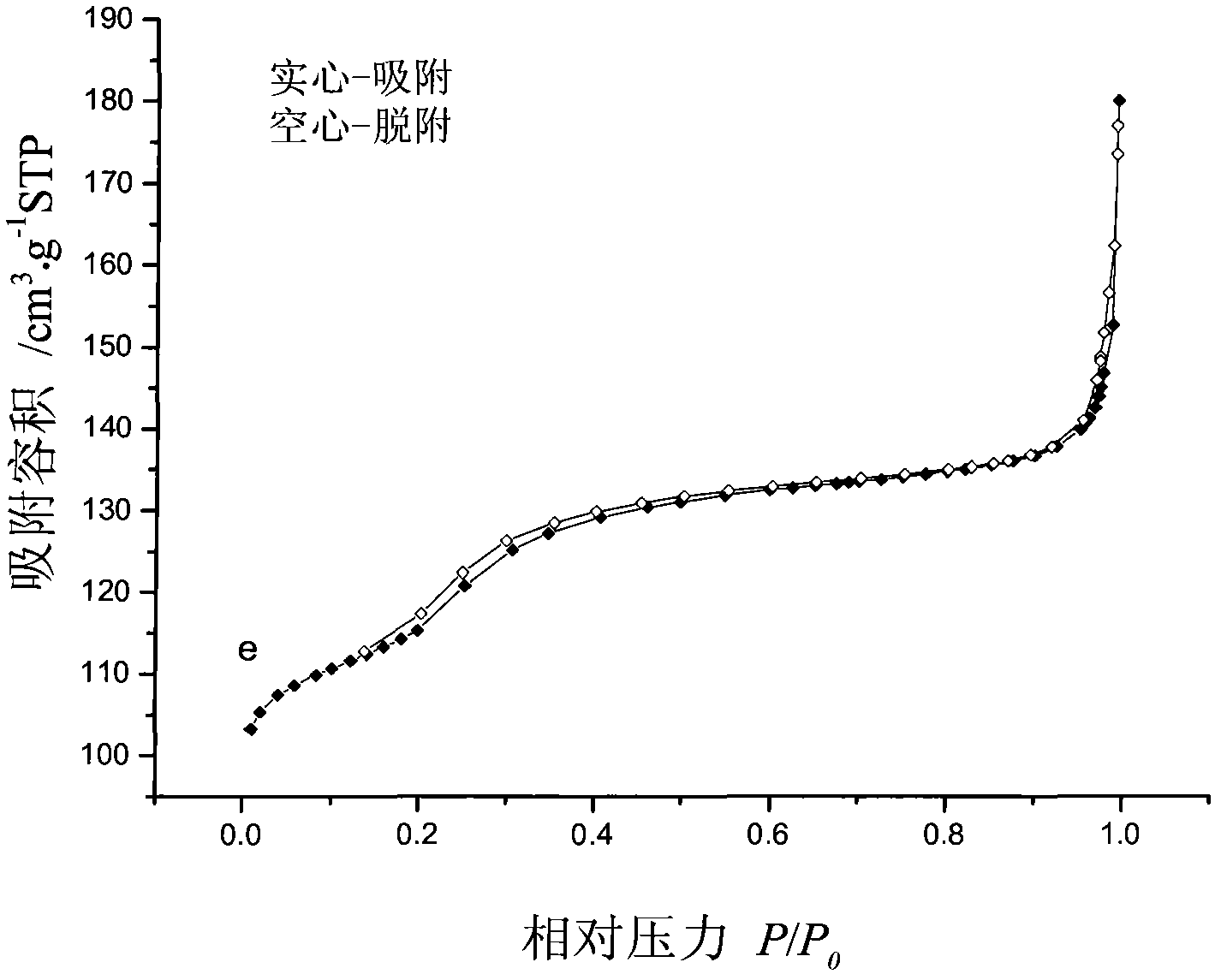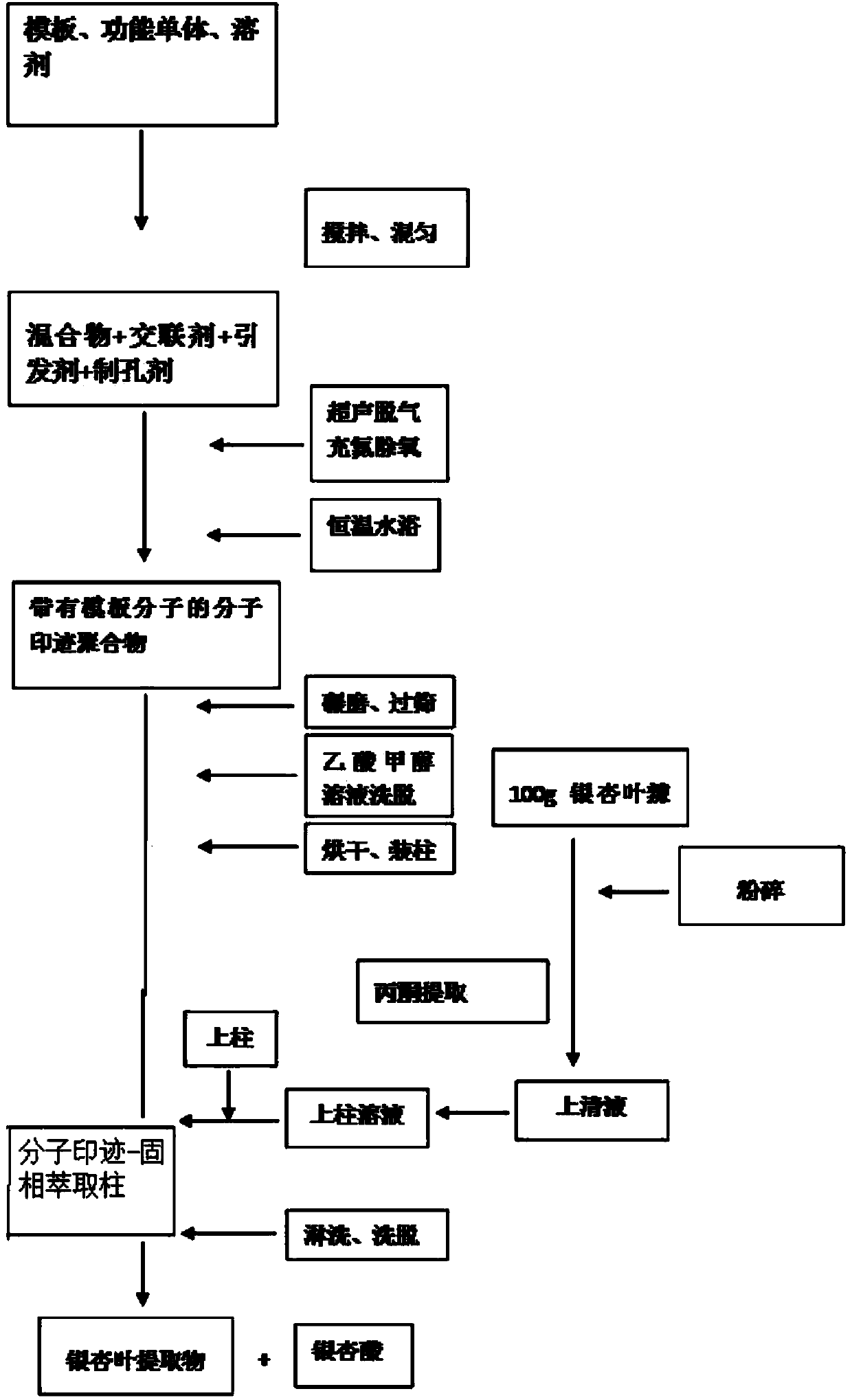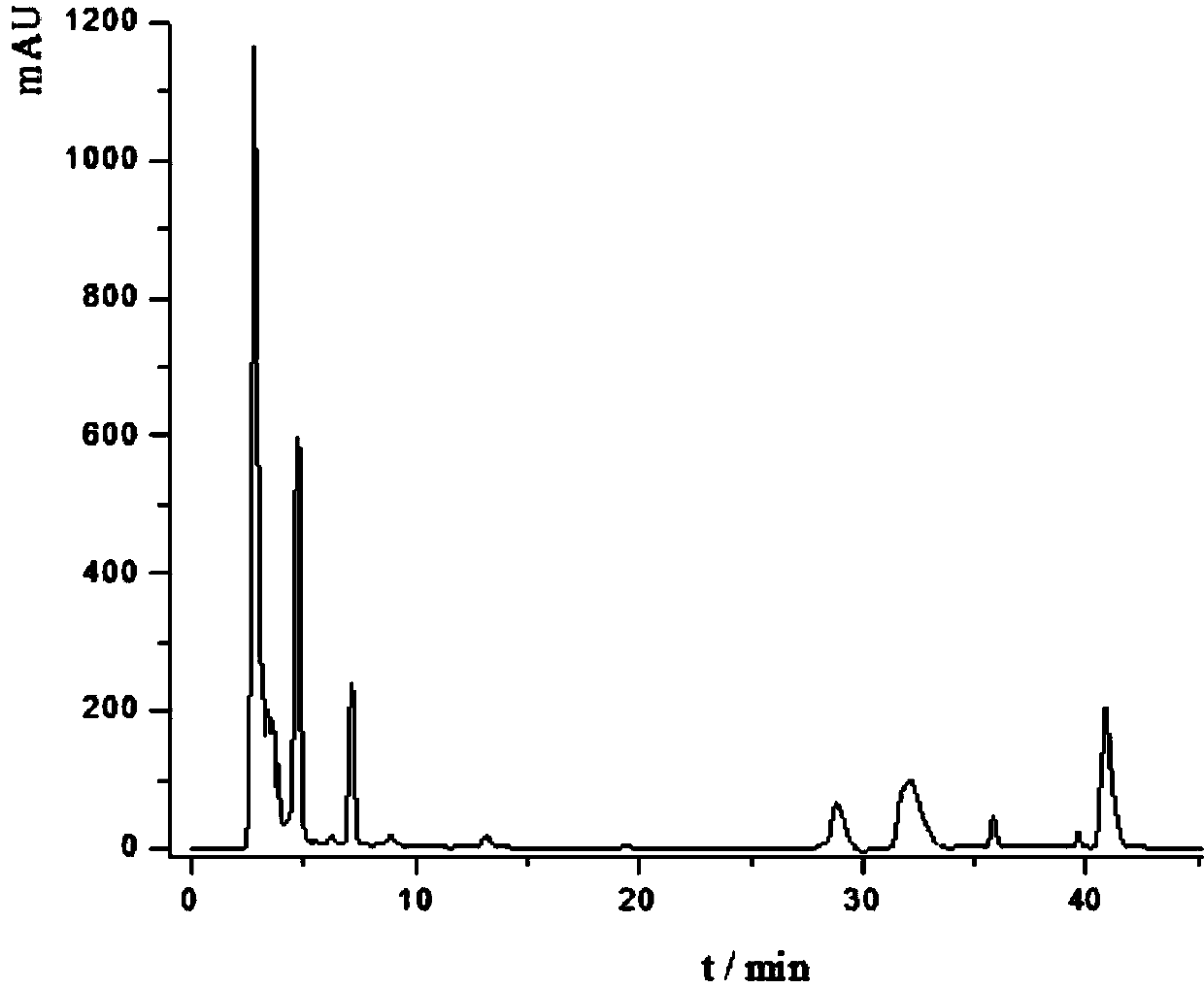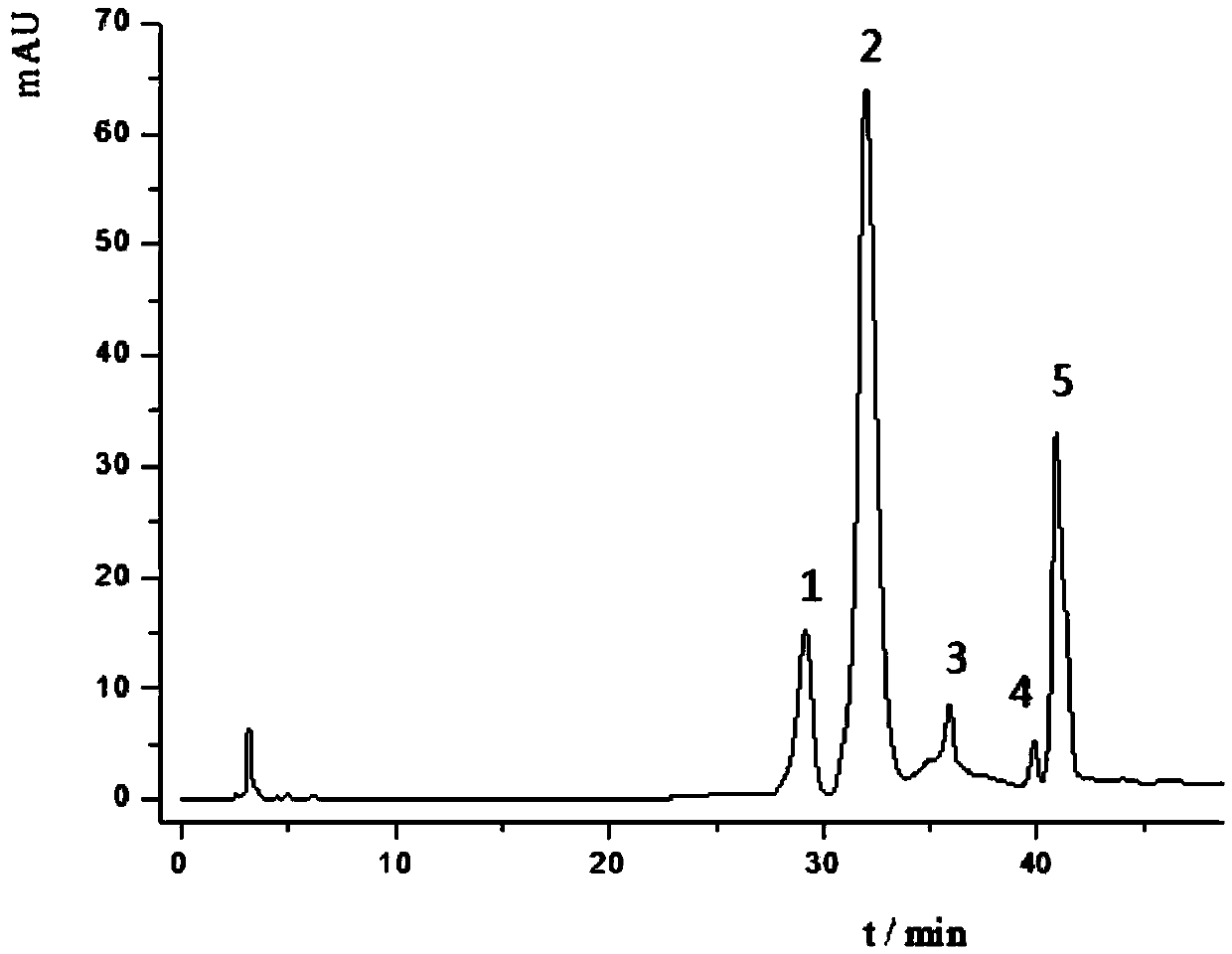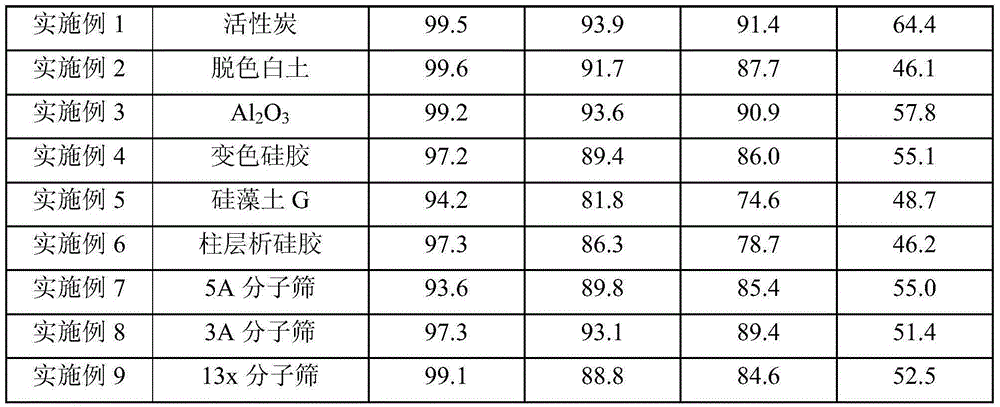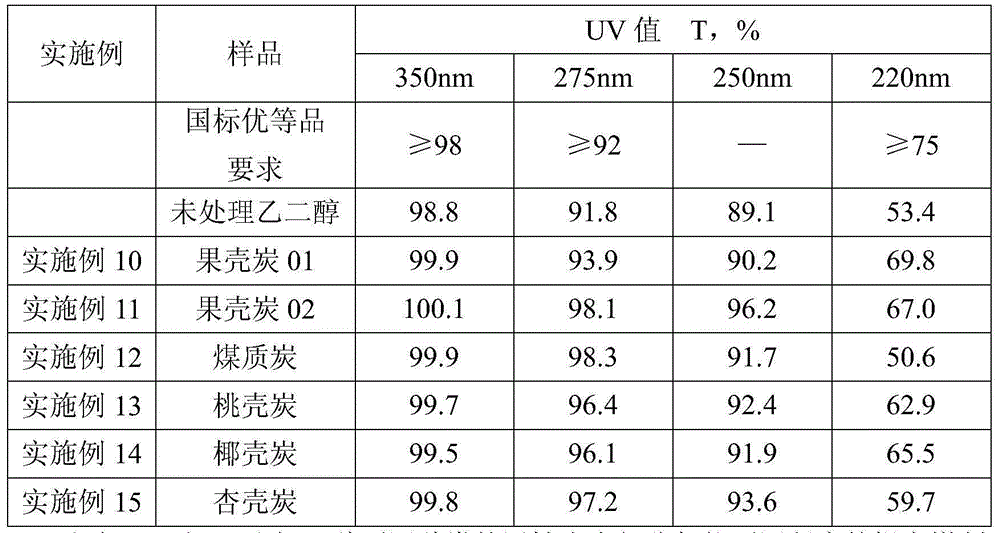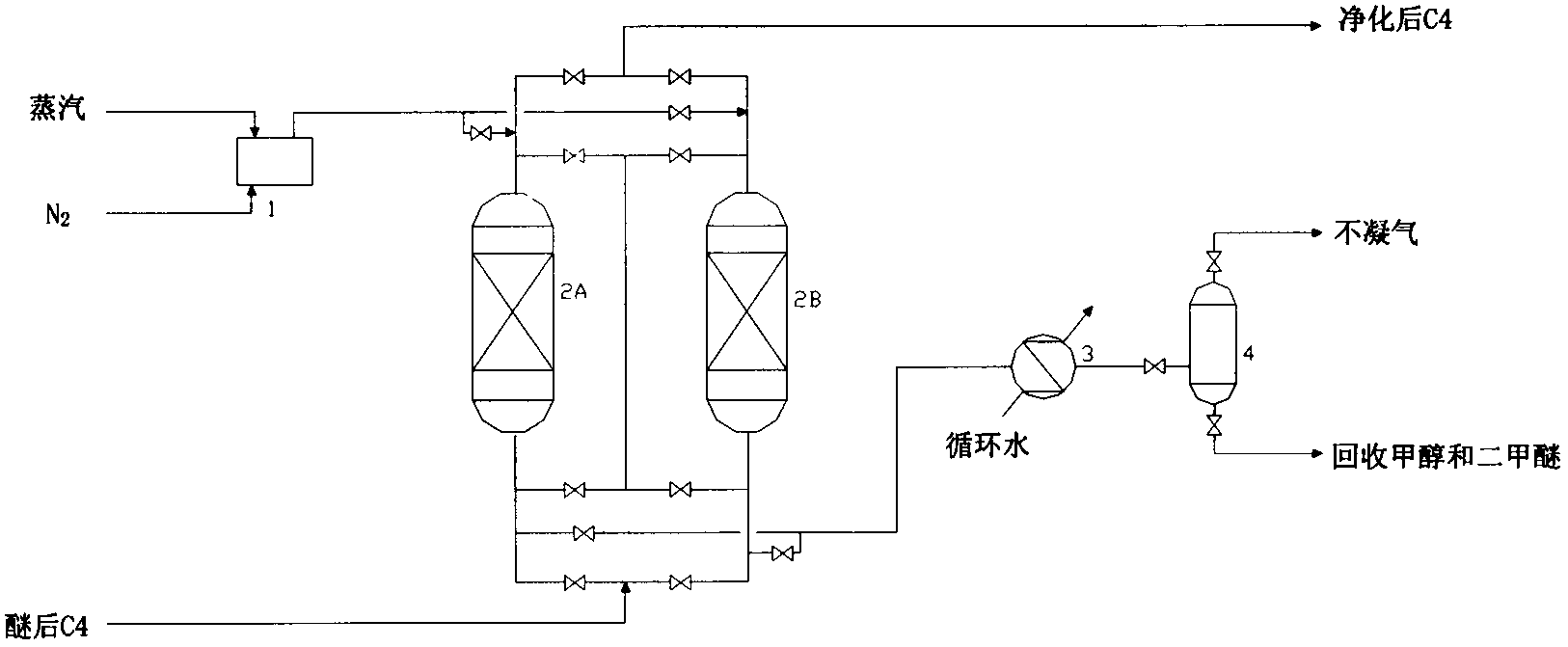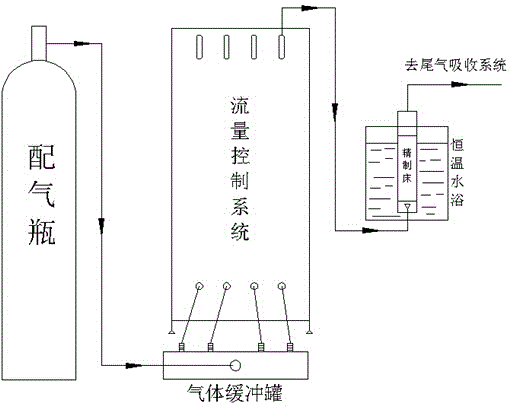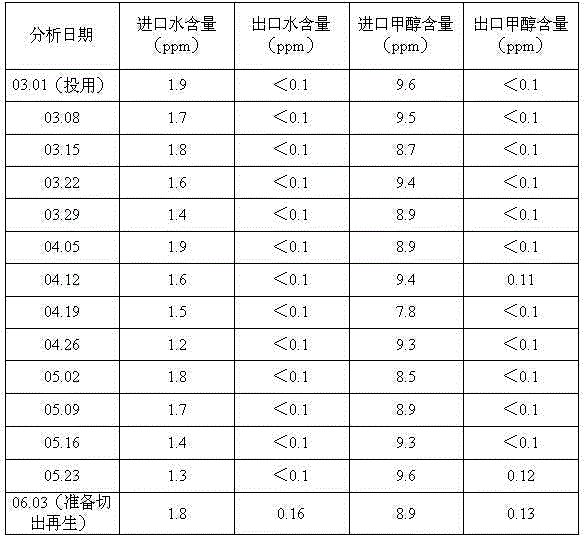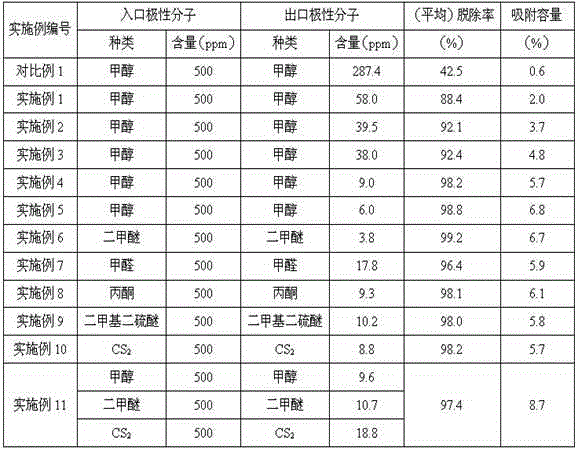Patents
Literature
189results about How to "Simple regeneration method" patented technology
Efficacy Topic
Property
Owner
Technical Advancement
Application Domain
Technology Topic
Technology Field Word
Patent Country/Region
Patent Type
Patent Status
Application Year
Inventor
Regeneration method of lithium extraction system
InactiveCN104388677AGuaranteed recyclingSimple regeneration methodProcess efficiency improvementLithiumDiluent
The invention discloses a regeneration method of a lithium extraction system. The lithium extraction system is regenerated by virtue of alkaline saponification and the regeneration method comprises the following steps of mixing empty-loading organic phases subjected to lithium extraction and reverse extraction and alkaline liquor, saponifying and standing for separating phases to obtain a clarified and transparent regenerated and extracted organic phase, wherein the empty-loading organic phases comprise an extractant, a synergistic extractant and a diluent which are involved in the lithium extraction and reverse extraction processes; the synergistic extractant is iron chloride; and the alkaline liquor is any one of sodium hydroxide solution and potassium hydroxide solution. The regeneration method of the lithium extraction system disclosed by the invention has the advantages of simplicity in operation and good saponifying effect; when lithium is extracted by virtue of the saponified, regenerated and recycled extraction organic phase, the extraction efficiency of lithium is high and the extraction effect is good; and by the method, the recycling of the extraction organic phase for extracting lithium is achieved and the process flows of extracting, carrying out reverse extraction, regenerating and extracting for circularly extracting lithium are completed.
Owner:QINGHAI INST OF SALT LAKES OF CHINESE ACAD OF SCI
Method for preparing metal ion imprinting adsorbent with underwater selective recognition performance
InactiveCN102626611ASimple regeneration methodLow costOther chemical processesWater/sewage treatment by sorptionCross-linkIndustrial waste water
The invention provides a method for preparing a metal ion imprinting adsorbent with an underwater selective recognition performance. The method comprises the steps of: preparation of an amino functional material: dispersing a nuclear body material into a methanol solution, slowly adding 3-propylaminoethoxy silane, uniformly stirring, and then, continuously adding a cross-linking agent and a stabilizer to form the amino functional material; and preparation of the metal ion imprinting adsorbent: dispersing the amino functional material in the methanol solution, and exposing to ultrasound to obtain a solution A; dissolving isonicotinic acid and metal template ions in deionized water to form a solution B; dripping the solution B into the solution A, and reacting to obtain a white sol-like product; and eluting the metal template ions: performing Soxhlet extraction by using an acetic acid-methanol solution, then eluting the metal template ions by using a hydrochloric acid, and drying to obtain the metal ion imprinting adsorbent. The metal ion imprinting adsorbent disclosed by the invention can be widely applied to advanced treatment of drinking water as well as enrichment recovery or rapid analysis detection of metal ions in different water bodies, such as industrial waste water, aquaculture water and seawater.
Owner:HARBIN ENG UNIV
Method for regenerating titanium-based vanadium-series SCR (Selective Catalytic Reduction) denitration catalyst
InactiveCN104190477ALow priceReduce processing costsCatalyst regeneration/reactivationMetal/metal-oxides/metal-hydroxide catalystsTitaniumHigh pressure
The invention relates to a method for regenerating a titanium-based vanadium-series SCR (Selective Catalytic Reduction) denitration catalyst. The method comprises the following steps: removing dusts from the surface of the waste titanium-based vanadium-series SCR denitration catalyst through high-pressure purging and ultrasonic wave treatment; carrying out acid treatment on the dust removed catalyst and washing the catalyst subjected to acid treatment with clean water; carrying out alkali treatment on the washed catalyst and washing the catalyst subjected to alkali treatment with clean water; adding the catalyst subjected to alkali treatment into a regeneration solution, soaking in a standing manner at 20-80 DEG C for 1-10h; drying the regenerated catalyst at low temperature; carrying out heat treatment on the dried catalyst in drying equipment at 200-500 DEG C for 1-3h, thereby obtaining a regenerated SCR denitration catalyst. The method has the beneficial effects of low treatment cost, simplicity in operation, easiness in automation and continuity, low corrosion to equipment, and good regenerating method and regenerating effect.
Owner:HUADIAN HIGH TECH GAOBEIDIAN ENVIRONMENTAL TECH +1
Prepn and application in industrial effluent treatment of biomembrane carrier
InactiveCN101066802AFast fixationPromote growthTreatment with aerobic and anaerobic processesSustainable biological treatmentEpoxyElectrolytic agent
The present invention relates to one kind of functional biological carbon fiber and its preparation process and application as biomembrane carrier. The biomembrane carrier is prepared with polyacrylonitrile carbon fiber, and through electrochemical surface treatment in 5-20 % concentration ammonium bicarbonate electrolyte to increase the surface acid oxygen containing functional groups and raise wettability, and gluing with water soluble epoxy resin in the amount 0.5-2 %. The biomembrane carrier can fix nitrobacteria, sulfate reducing bacteria and anaerobic methanogen. It may be used in treating high concentration acrylon waste water, and can eliminate sulfate, COD and ammonia nitrogen effectively. In addition, the biomembrane carrier is easy to regenerate and has no secondary pollution.
Owner:BEIJING UNIV OF CHEM TECH
High silicon-containing waste water in oil field reuse boiler pretreatment technology and apparatus
ActiveCN102826680AReduced metal cation contentAdvantages of pretreatment processWaste water treatment from quariesMultistage water/sewage treatmentSolubilityChelating resin
The invention relates to a high silicon-containing waste water in an oil field reuse boiler pretreatment technology and an apparatus. The pretreatment technology comprises the following steps: adjusting the high silicon-containing waste water in the oil field and adding a reverse demulsifier; depositing the adjusted waste water, separating oil and water and removing the impurity in the waste water; adding a salt substance in the waste water after deposition treatment and performing air floatation treatment, removing an dissolved organic matter and oil, filtering the waste water after the air floatation treatment and removing suspended matters; using filtering weak acid resin for preliminarily softening the filtered waste water, reducing the concentration of high valent cationic to ppm grade, using chelate resin for deeply softening the waste water after preliminary softening, and reducing the concentration of high valent cationic to ppb grade to obtain the high silicon-containing waste water after pretreatment in the oil field. The invention also provides the high silicon-containing waste water in oil field reuse boiler pretreatment apparatus.
Owner:PETROCHINA CO LTD
Method for dynamically adsorbing heavy metals in solution and application thereof
ActiveCN110732160AImprove adsorption capacityReduce resistanceMembranesSeawater treatmentFiberPhosphate
The invention provides a method for dynamically adsorbing heavy metals in a solution and application thereof. The method comprises the following steps: taking a functional fiber membrane as an adsorption medium, enabling a solution containing heavy metals to flow through the adsorption medium, and then flushing the adsorption medium by adopting a flushing agent to realize regeneration of the adsorption medium and recovery of the heavy metals, wherein the functional fiber membrane contains modified groups, and the modified groups are any one or a combination of more than two of amino group, amidoxime group, phosphate group and sulfydryl. The continuous adsorption of metal ions is realized by adopting a dynamic adsorption method, the continuous operation of the adsorption process is realized, and the adsorption efficiency is improved. Meanwhile, the surface of the functional fiber membrane provided by the invention has the modified groups, the specific surface area is large, target metals, especially uranium metal, can be efficiently adsorbed, and the method is simple to operate and easy for regeneration of the adsorption medium and recovery of heavy metals.
Owner:INST OF PROCESS ENG CHINESE ACAD OF SCI
Method for producing guaiacol with methanol method
InactiveCN101492353AImprove product qualityHigh yieldMolecular sieve catalystsChemical recyclingMethylating AgentGuaiacol
The invention provides a method for preparing guaiacol by a methanol method. Methanol used as a methylating agent and pyrocatechol are used for synthesizing the guaiacol under the action of a solid acid catalyst in a high pressure vessel. The solid acid catalyst used for synthesizing the guaiacol has low price, is friendly to environment and can be recycled. The invention is characterized in that the invention has simple preparation technology, mild reaction condition and short reaction time; the obtained guaiacol is light yellow clear transparent liquid and has good product quality, high yield, high selectivity and few side products; and all side products in reaction liquid can be recycled.
Owner:BEIJING UNIV OF CHEM TECH
Deep softening method of thick oil sewage
ActiveCN102815765ASolving the scaling problem of boilers reused in thermal recoveryAvoid badWater/sewage treatment by ion-exchangeWater qualitySewage
The invention relates to a deep softening method of thick oil sewage, which comprises the following steps: preterating thick oil sewage to remove impurities in the thick oil sewage, and carrying out preliminary softening treatment with a macroporous weak acid resin until the pH value of the thick oil sewage reaches 7-9 and the temperature reaches 57-80 DEG C; passing the pretreated thick oil sewage through an adsorption tower or adsorption column filled with a chelating resin at the flow rate of 20-30 BV / h to carry out adsorption treatment; and when the adsorption reaches the leakage point, obtaining the thick oil sewage subjected to deep softening. The method provided by the invention is a treatment process capable of efficiently softening thick oil sewage according to the water quality characteristic of the thick oil sewage; and the method provided by the invention can still be used repeatedly in a thermal recovery boiler without generating scales after saving the silicon removal system.
Owner:PETROCHINA CO LTD
Regeneration method of CaO/Al2O3 desulfurizing agent
InactiveCN1460555ASimple regeneration methodEasy to operateDispersed particle separationCatalyst regeneration/reactivationSulfurSpace velocity
The regeneration method of CuO / Al2O3 desulfurizer is that the CuO / gamma-Al2O3 desulfurizer for absorbing sulfur can be reduced and regenerated in the atmosphere containing ammonia gas, its regeneration temp. is 350-500 deg.C, space velocity is 500-3000 hr (-1) and regeneration time is 30-90 min. Its regeneration process is simple, its secondary desulfurizing activity is stable, the SO2 produced in the course of regeneration can be combined with unreacted NH3 under the condition of low temp. to form solid ammonium sulfate salt.
Owner:SHANXI INST OF COAL CHEM CHINESE ACAD OF SCI
Simultaneous desulfurization and denitration catalyst and preparation method thereof
InactiveCN102974359AHigh activityImprove stabilityDispersed particle separationMetal/metal-oxides/metal-hydroxide catalystsActivated carbonPtru catalyst
The invention discloses a simultaneous desulfurization and denitration catalyst and preparation method of the simultaneous desulfurization and denitration catalyst. The desulfurization and denitration catalyst is composed of 60-80 parts by weight of carrier activated carbon (AC), 2-40 parts by weight of active ingredient neodymium oxide (Nd 203) and 0-20 parts by weight of promoter cobalt monoxide (CoO), wherein the total parts by weight of the activate ingredient and the prompter is 2-40. Detailed preparation method is explained in an introduction book. The simultaneous desulfurization and denitration catalyst and preparation method of the simultaneous desulfurization and denitration catalyst has the advantages of being wide in catalyst source, easy to obtain, easy in a preparation and regeneration method, high in catalyst mechanical strength, small in erosion, high in using efficiency of raw materials, suitable for mass production, high in catalyst activity, wide in operation temperature range, capable of being tested in a simulation test for a long time within a temperature range from 350 DEG C to 500 DEG C, and capable of acquiring a desulfurization denitration rate over 90 percent.
Owner:BEIJING INSTITUTE OF PETROCHEMICAL TECHNOLOGY
Flue gas dry-type method for simultaneously desulfurizing and denitrating
ActiveCN101279186ASimple structureSimple regeneration methodLighting and heating apparatusDispersed particle separationWorking temperatureFixed bed
The invention relates to a dry-type method of simultaneous desulfurization and denitration of flue gas, which takes iron-based metallic oxides and modules prepared by flay ash as catalyst of denitriation reaction of selective catalystic reduction and desulfurizer. The method of the invention utilizes one reactor to realize simultaneous desulfurization and denitration; the saturated modules after adsorption can be reused through the way of heat regeneration. The process of the invention is that: leading the boiler flue gas out of a coal economizer, distributing the flow of the flue gas through a first grade air deflector, fully mixing the distributed gas flow with the ammonia sprayed in, going through a second grade air deflector to cause the gas flow to be more even, leading the obtained material sequentially going through the catalystic modules of each layer in a fixed-bed reactor, carrying out oxidation-reduction reaction and combination reaction. The method of the invention has low bed pressure drop, can realize desulfurization and denitration simultaneously, has wide working temperature scope, and the desulfurization and denitration efficiency is over 80 percent by adopting the multi-layer catalyst with 4-17wt percent of sulfur capacity.
Owner:TSINGHUA UNIV
Immobilized enzyme for magnetic nanometer clay carrier and regenerating method thereof
InactiveCN102649954AImprove magnetic strengthVector regeneration method is simple and easyOn/in inorganic carrierTriethoxysilanePhysical chemistry
The invention relates to an immobilized enzyme for a magnetic nanometer clay carrier. The immobilized enzyme comprises a carrier with saccharifying enzyme and corresponding immobilized enzyme as immobilizing objects. The immobilized enzyme is prepared by taking a covalence coupling method as an immobilizing method and is characterized in that: the carrier is a magnetic nanometer Fe3O4@ clay compound material; the magnetic nanometer Fe3O4@ clay compound material is composed of magnetic Fe3O4 nanometer grains and a nanometer clay material; and the magnetic Fe3O4 nanometer grains are assembled on the nanometer clay in sequence. A superparamagnetic Fe3O4@ clay compound material is prepared by adopting a solvent heat method according to the invention; the surface of the Fe3O4@ clay compound material is modified by using gamma-aminopropyl triethoxy silane, and then glutaraldehyde is used as a coupling agent for covalently fixing the saccharifying enzyme on the surface of the carrier; two novel carrier regenerating strategies are designed; after the saccharifying enzyme is immobilized by the regenerated carrier, the excellent properties, such as original activity, thermal stability and reusability, of the immobilized enzyme are still maintained; and the immobilized enzyme is also suitable for the regeneration of the immobilized enzyme carrier according to the covalence coupling method.
Owner:LANZHOU UNIVERSITY
Regenerating method of waste lubricating oil
ActiveCN106753742ALess investmentSimple regeneration methodLubricant compositionFlocculationEconomic benefits
The invention relates to a regenerating method of waste lubricating oil. The regenerating method comprises the following steps in sequence: flocculation, demulsification, sedimentation, two-step extraction, clay refining and filtering. According to the method disclosed by the invention, colloid, asphaltene, metal powder, ash and the like in the waste lubricating oil are well removed, and clear and transparent oil is obtained, so that the method has the advantages of little regenerating equipment investment, simple regenerating method, low operating cost, convenient and safe operation and the like, waste residues generated after flocculation can be used for reprocessing ink, secondary pollution cannot be generated, the method has certain economic benefits, the method is suitable for the national conditions that the waste lubricating oil in our country is small in regeneration scale, little in investment, backward in technology and the like, and the method has great significant in economic and social sustainable development.
Owner:盱眙凹土能源环保材料研发中心 +1
Regeneration method of inactivated carbonyl sulfide hydrolysis catalyst taking activated carbon as carrier
InactiveCN101670302ASimple regeneration methodEasy to operateDispersed particle separationCatalyst regeneration/reactivationActivated carbonTube furnace
The invention provides a regeneration method of an inactivated carbonyl sulfide hydrolysis catalyst taking activated carbon as a carrier. The regeneration method comprises the following steps: roasting an inactivated catalyst for 3-4 hours at the temperature of 150-300 DEG C in a tube furnace; then washing for 20-40 minutes by using distilled water, drying for 3-6 hours at the temperature of 110-130 DEG C, then immersing in alkaline solutions such as Na2CO3 and NaHCO3 for 20-40 minutes, and finally, drying for 3-6 hours at the temperature of 110-130 DEG C to obtain the regenerated catalyst. The regeneration method is simple and can be conducted at normal temperature, roasting process has low temperature and immersing process has simple operation, moreover the immersing liquor can be obtained easily, thus being easy for realizing industrialization; the catalyst after regeneration has high activity, can lead the conversion rate of the COS (carbonyl sulfide) to achieve more than 95% and can be widely used for the removal of the COS in chemical raw material gas.
Owner:KUNMING UNIV OF SCI & TECH
Catalyst for preparing propylene from C4 olefins, and application and regeneration method thereof
ActiveCN101927180ASimple processEasy to operateMolecular sieve catalystsCatalyst regeneration/reactivationLithium oxideFixed bed
The invention discloses a method for increasing yield of propylene by using C4 fraction in ethylene plants and oil plants. In order to solve the problems of catalyst stability and regeneration in the prior art for preparing propylene from C4 olefins, high-silica zeolite and silicon oxide are selected as the main components of the catalyst, and basic oxides and acidic oxides are used for modification to prepare the olefin conversion catalyst, wherein the basic oxides are preferably calcium oxide and lithium oxide, and the acidic oxides are preferably boron oxide and phosphorus oxide. After being tested, the catalyst has favorable stability, and various properties can be restored after the catalyst is regenerated. The application method of the catalyst comprises the following steps: using the mixture of raffinate I or etherified C4 as the raw material, exchanging heat, preheating, contacting with high silicon / aluminum ratio zeolite catalyst in a fixed bed adiabatic reactor to generate the reactant mixture containing ethylene and propylene, exchanging heat, cooling and separating to obtain propylene, ethylene and the like for cycle use. The invention provides an industrially available method.
Owner:CHINA PETROLEUM & CHEM CORP +1
Preparation and use method of dephosphorization carboxyl functionalized nano Fe2O3 adsorbing agent for wastewater
InactiveCN101503217AEfficient removalImprove hydrophilicityFerroso-ferric oxidesWater/sewage treatment by sorptionHigh concentrationPhosphate
The invention provides a preparation of a wastewater phosphorus removal carboxyl functional nanometer Fe3O4 adsorbent and an application method thereof. The preparation method comprises the following steps: taking FeCl2.4H2O and FeCl3.6H2O as the source of iron grains; dropping sodium hydroxide as a precipitant under the protection of inert gas; preparing a certain dimension of Fe3O4 grains; adding diethylene triaminepentaacetic acid (DTPA) carbonation by utilizing the in-situ composite method during the precipitating and the forming processes of the nanometer Fe3O4 crystal grains; and preparing the black carboxyl functional nanometer Fe3O4 adsorbent, wherein the diameter of the adsorbent is 5 to 20 nm. The preparation and the application of the adsorbent have simple operation steps, low cost and highly-efficient removal effect for phosphate in water; the removal ratio achieves above 99 percent; the adsorbent can be widely applied to the high-concentration phosphoric industrial wastewater and water supply depth phosphorus removal process and can be separated from the solution after being absorbed quickly under an external magnetic field, thereby solving the problem of solid-liquid separation after phosphor is absorbed by the adsorbent; and the adsorbent can be recovered and utilized and has simple and generative method.
Owner:如皋市生产力促进中心
Application of covalent triazine framework (CTF) material in removal of organic dyes in water phase
InactiveCN103224264ASimple regeneration methodHigh surface areaCombustible gas purificationWater/sewage treatment by sorptionIndustrial effluentSorbent
The invention belongs to the technical field of applications of new materials and specifically discloses an application of a covalent triazine framework (CTF) adsorption material with an excellent adsorption removal effect in removal of organic dyes in a water phase solution. The material has a good effect when used for adsorption removal of organic dye molecules in industrial wastewater, and the adsorption removal effect of the adsorption material against different types of the organic dye molecules is further considered under different acidic and alkaline conditions. The results show that the material has excellent adsorption capability against the organic dye molecules, the removal effect is particularly obvious against cationic dye molecules, and the material can also be recycled. The adsorption agent belongs to a polymer material, is environment-friendly and excellent in performance, and has industrial application prospects against industrial sewage treatment.
Owner:SOUTH CENTRAL UNIVERSITY FOR NATIONALITIES
Molecular engram polymer for purifying 6-gingerol as well as preparation and uses thereof
InactiveCN101255206AHigh purityHigh selectivityCarbonyl compound separation/purificationAlcoholOrganic solvent
The invention discloses a preparation and application technique of molecular engram polymer for purifying 6-gingerol. The 6-ginerol, function monomer, crosslinking agent, initiator and solvent are mixed together in reaction kettle and reacted at constant temperature after degassing to obtain molecular engram polymer with template. The molecular engram polymer is subjected to grinding and screening to produce uniform molecular engram polymer granules with templates. The templates are washed away using organic solvent and dried to obtain molecular engram polymer for purifying 6-gingerol. The molecular engram polymer is used as column chromatography filling material to fill the column and the ginger juice is added into the column chromatography, the alcohol solution is used to elute, and then the elution liquid is concentrated and the alcohol is recovered, the 6-gingerol is finally obtained after extracting. The molecular engram polymer for purifying 6-gingerol has features of high selectivity, large adsorptive capacity and regeneration and the purity of 6-gingerol purified by the method can be about 95%.
Owner:JINAN UNIVERSITY
Preparing and regenerating methods of hydrophobic coating activated carbon capable of improving adsorption to water-containing organic gas
InactiveCN105797690AImprove adsorption capacityEasy to prepare and regenerateGas treatmentOther chemical processesActivated carbonCoating
The invention discloses preparing and regenerating methods of hydrophobic coating activated carbon capable of improving adsorption to water-containing organic gas. The preparation method comprises the steps that 1, activated carbon is cleaned and dried for use; 2, a cross-linking reaction is conducted through heating and condensing methods, a hydrophobic polymer material is loaded on the cleaned and dried activated carbon, and the hydrophobic coating activated carbon is obtained. The regenerating method comprises the step that after the hydrophobic coating activated carbon is used for adsorbing the water-containing organic gas, regenerated activated carbon is obtained through a heating method under the protection of inert gas. The preparing and regenerating methods of the hydrophobic coating activated carbon are simple, needed equipment is simple, the prepared hydrophobic coating activated carbon can significantly improve adsorption to the water-containing organic gas, and the adsorption capacity of the regenerated activated carbon to the water-containing organic gas is not obviously reduced.
Owner:CHINESE RES ACAD OF ENVIRONMENTAL SCI
Flocculated-adsorption regeneration treating method for waste engine oil
InactiveCN101768505AReduce investmentSimple regeneration methodIon-exchange process apparatusIon-exchanger regenerationSlagFiltration
The invention relates to a flocculated-adsorption regeneration treating method for waste engine oil. The method comprises the following steps of settling filtration, primary flocculation, secondary flocculation, and adsorption bleaching. The impurities, hydrocarbons, carbon deposits, particles, cement gums and the like in the oil can be settled and separated through two flocculation processes, the bleaching property of hydrogen peroxide and the adsorption bleaching property of clay are combined, and then the color, stability and electric property of the oil can be obviously improved. The regeneration method has the advantages of simple process, convenient and safe operation, low investment of regeneration equipment, improvement on the original lubricating oil blending equipment, and suitability for small-scale treatment. The regenerated lubricating oil completely satisfies the applicable national standards. The residue slag generated in the flocculation process can be used as asphalt matching material for paving roads after reprocessing. The good economic benefit can be produced, and the secondary pollution is reduced.
Owner:CHANGAN UNIV
Application of carbon-fiber biofilm carrier in wastewater treatment
InactiveCN101544449AFast fixationHigh affinityTreatment with aerobic and anaerobic processesMultistage water/sewage treatmentFiberHigh concentration
The invention relates to application of functional biological carbon fiber. The carbon fiber of which the surface contact angle is 50 to 180 degrees and the range of equilibrium moisture content is 1.0 to 5.9 percent is adopted as a biofilm carrier. The biofilm carrier can rapidly fix nitrobacteria, denitrifying bacteria, sulfatereducting bacteria and anaerobic methanogens. Acrylic and other high-concentration production wastewater is treated mainly through two-phase anaerobic / aerobic nitration and other processes, so that sulfate, COD, BOD, ammonia nitrogen and nitrate nitrogen can be effectively reduced and removed. In addition, a regeneration method of the biofilm carrier is simple and easy to apply and free from secondary pollution. The invention is particularly applicable to the biological treatment of acrylic wastewater and other industrial wastewater with high sulfate, high COD, low carbon-sulfur ratio and substances difficult to biodegrade.
Owner:BEIJING UNIV OF CHEM TECH
Environment protection method of handling industrial abandoned phosphorized liquid
ActiveCN101062767ASimple regeneration methodFlexible approachPhosphatesInorganic pigment treatmentSimple componentPigment
The invention discloses a environment protection handling method of industrial dumping phosphating liquid, which comprises the following steps: comprising regenerating utilization or inverting utilization; testing the known dispense waste phosphating liquid; checking the free acidity, total acidity and content of each effective composition; comparing the checking result with original phosphating liquid; adjusting the changeable component to the original phosphating liquid; mixing the known or unknown dispense dumping phosphating liquid and basic material proportionally; getting microcosmic salt as rust-preventive pigment of rust-inhibiting primer. This invention possesses flexible method and simple component, which can keep predominance product performance.
Owner:DALIAN BETRUST ENVIRONMENTAL PROTECTION TECH CO LTD
Framework modification acid-alkali bifunctional ZSM-5 zeolite catalyst and method for preparing the same
InactiveCN101181692AHas a dehydrogenation effectHigh crystallinityMolecular sieve catalystsHydrocarbon from oxygen organic compoundsAlcoholBifunctional
The invention pertains to a catalyst and application technology field thereof, which relates to a framework modification acid-alkali difunctional ZSM-5 zeolite catalyst and a preparation method and applications thereof. H-ZSM-5 zeolite is adopted by the catalyst as substrate material, and the substrate material is heated and hybrid reacted with nitrogenous modified raw material solvent and steam, then the catalyst is prepared. Part framework oxygen atom of the ZSM-5 zeolite of the catalyst is replaced by amine (nitrogen) group, thus the catalyst has acid-alkali difunctional catalyst property; the catalyst has the advantages of high crystallinity, open pore canal, comparatively larger specific surface, good molecular disperse property, high strength and excellent wearing resistance. Reclaiming process of the catalyst is convenient, and the reclaimed catalytic performance recovers well. The catalyst shows excellent catalytic activity, selectivity and stability in catalytic reactions of MTO, MTP, ETE and other alcohols dehydration to alkenes. The preparation method of acid-alkali difunctional ZSM-5 zeolite catalyst is simple, preparation cost is comparatively low and industrialized potential application range is wide.
Owner:FUDAN UNIV
Catalyst for production of propylene and ethylene with carbon alkatetraenes, regeneration and uses thereof
ActiveCN101172247ASimple processEasy to operateMolecular sieve catalystsCatalyst regeneration/reactivationWater vaporFixed bed
The invention discloses catalyst for preparing propylene and ethylene with C4 fraction and a regeneration method and application thereof, which belongs to the technical proposal of low molecular alkene preparing the propylene and ethylene, and relates to catalyst including 25 to 40 percent of high silica zeolite, 45 to 65 percent of silica and 10 to 15 percent of modified component provided for solving the problems of the prior art that the operation cycle is short, the selectivity is poor and the catalyst regeneration method is not provided, and the C4 mixture not including diolefin is takenas the raw material, water vapor is used as diluent, and the reaction is realized in a fixed-bed adiabatic reactor to produce the propylene and ethylene. The catalyst of the invention can be reused after being regenerated. The process of preparing propylene and ethylene of the invention has simple process and convenient operation, the operation cycle of the catalyst is long, the propylene and ethylene can be prepared for a long time with high efficiency, and the regeneration method of the catalyst of the invention is simple, and the service life is long.
Owner:CHINA PETROLEUM & CHEM CORP +1
Simultaneous desulfurization and denitration catalyst
InactiveCN102974358AWide variety of sourcesEasy accessDispersed particle separationMetal/metal-oxides/metal-hydroxide catalystsActivated carbonPtru catalyst
The invention relates to a simultaneous desulfurization and denitration catalyst which comprises a carrier with a mass percent of 70-99.9 percent, active ingredient praseodymium oxide with a mass percent of 0.1-3.0 percent and nickel oxide or cobalt oxide prompter with a mass percent of 0-15 percent. The simultaneous desulfurization and denitration catalyst is prepared by an acknowledged isopyknic method and has the advantages of being wide in source, easy to acquire, low in cost, and easy in a preparation and regeneration method as the simultaneous desulfurization and denitration catalyst is manufactured from activated carbon, activated coke or activated carbon fibers, and being large in a catalyst specific surface area, high in activity, good in stability, and wide in operating temperature range from 300 DEG Cto 500 DEG C and capable of acquiring a desulfurization denitration rate over 90 percent, simultaneously eliminating carbon monoxide (CO) in flue gas by using CO as reducing agent, acquiring by-product elemental sulfur, free from secondary pollution, wide in application range and suitable for industry popularization.
Owner:BEIJING INSTITUTE OF PETROCHEMICAL TECHNOLOGY
ZSM-5 zeolite catalyst for preparing propylene by methanol dehydration as well as preparation method and application thereof
InactiveCN102059138ALarge specific surface areaMolecular diffusivity is goodMolecular sieve catalystsHydrocarbon from oxygen organic compoundsPerformance recoveryActive ingredient
The invention provides a ZSM-5 zeolite catalyst for preparing propylene by methanol dehydration, which contains a ZSM-5 zeolite material and alumina; the active ingredient of the catalyst is commercially available 200-800-nanomter ZSM-5 zeolite crystal powder, the framework of the catalyst has the Si / Al molar ratio being more than 500 and is prepared by means of bonding formation of aluminum sol, and aluminum is dispersed in zeolite powder amorphously after high temperature calcining. The catalyst which is applied to MTP (Methanol To Propylene) reaction has high catalytic activity and propylene selectivity and long stable cycle of high conversion rate of catalytic reaction. Industrial crude methanol with 90% concentration is used as a raw material for reaction, and the one-way life is more than 700 hours. The regenerative method of the ZSM-5 zeolite catalyst is simple and the performance recovery after regeneration is excellent. In addition, the invention provides a preparation method and application of the catalyst.
Owner:DATANG INT CHEM TECH RESINST
Method for removing and enriching ginkgolic acid from ginkgo biloba extract
ActiveCN104189026AHigh purityReliable source of raw materialsGinkgophyta medical ingredientsN-Propyl alcoholSolid phase extraction
The invention discloses a method for removing and enriching ginkgolic acid from ginkgo biloba extract. The method comprises the following steps: carrying out column filling by taking a molecularly imprinted polymer of ginkgolic acid as column chromatography packing; then filling the column with a ginkgo biloba extracting solution; leaching the column with a mixed solution of cyclohexane and ethyl alcohol in a volume ratio of 10 to 1; finally, eluting the chromatographic column with alcohol so as to obtain an effluent, namely ginkgolic acid, wherein the alcohol can be of ethyl alcohol, isopropanol, n-propyl alcohol or n-butyl alcohol. A molecular imprinting technique is applied to the removal of ginkgolic acid during ginkgo biloba processing for the first time, so that compared with the traditional ginkgolic acid removal method, according to the method disclosed by the invention, ginkgolic acid with high purity is prepared while ginkgolic acid is removed by virtue of the directional enrichment effect of the molecularly imprinted-solid phase extraction column, thereby providing the source of a raw material for clinical pharmacological research on ginkgolic acid.
Owner:SHANDONG ANALYSIS & TEST CENT
Refining agent and refining method of coal polymer grade glycol
ActiveCN105085175AImprove adsorption capacitySimple processHydroxy compound separation/purificationAcid etchingActivated carbon
The invention provides a refining agent and a refining and purifying method of coal polymer grade glycol. The refining agent of coal polymer grade glycol is characterized by being activated carbon modified by acid etching pretreatment, wherein an acid solution used by pretreatment is a ternary mixed solution of inorganic acid, low carbon alcohol and water. The refining method of coal polymer grade glycol is characterized in that coal glycol sequentially passes through fixed bed layers filled with the refining agent, an over-entering and down-out sampling way is adopted, the refining temperature is 10-100 DEG C, and the liquid hourly space velocity is 0.5-8 / h. The UV value of coal glycol refined by the method can reach the polymer grade standard (220nm>=75%, 275nm>=92%, 350nm>=99%). Compared with the prior art, the refining method provided by the invention has the advantages of simple process flow, high adsorption capacity and simple regeneration method. Verified by pilot plant tests of 300 tons of coal glycol per year, the effect is good.
Owner:HAISO TECH
Regeneration of agent for removing oxygenated compounds in etherified C4 and application
InactiveCN103170306AGood dispersionExtended service lifeOther chemical processesCombustible gas purificationMolecular sieveSorbent
The invention provides regeneration of an agent for removing oxygenated compounds in etherified C4, which is reasonable and practicable in design and low in cost, and application thereof, and. In order to solve the absorbent inactivation problem of subsequent processes when the oxygenated compound-containing etherified C4 fraction is served as a chemical raw material, the invention provides an absorbent. The absorbent consists of 25-40% of a molecular sieve, 45-65% of aluminium oxide and 10-15% of a modified component, wherein the etherified C4 mixture is served as a raw material and is removed with the oxygenated compounds in a fixed bed reactor. The absorbent can be repeatedly used after regeneration. The technology for removing the oxygenated compounds is simple and convenient to operate, and the agent can be used for a long period and has high purity; and moreover, the agent is simple in regeneration method and has a long service life.
Owner:DONGYING COLT NEW MATERIAL CO LTD
Adsorbent for removing polar molecules in light hydrocarbon material flow, and preparation method and regeneration method of adsorbent
ActiveCN104148006AReasonable surface charge distributionHigh selectivityOther chemical processesCombustible gas purificationRare-earth elementSorbent
The invention relates to an adsorbent for removing sulfur-and-oxygen-containing impurities from a light hydrocarbon material flow, and a preparation method and a regeneration method of the adsorbent. The adsorbent is prepared by expanding pores by using organic amine, adding an alkali metal salt solution which contains a small quantity of rare earth metals, blending and then adding an adhesive for rolling balls and forming, wherein activated aluminum oxide and kaolin are taken as raw materials; and performing high-temperature roasting and activating after low-temperature drying is performed, wherein the prepared adsorbent consists of Al2O3, SiO2, alkali metal oxides and trace rare earth oxides; the particle diameter of the prepared adsorbent is 2.5 to 5.5mm; the specific surface area of the adsorbent is 260 to 320m<2> / g; the pore volume of the adsorbent is 0.3 to 0.35ml / g. According to the adsorbent, electric charges on the surface of the adsorbent are distributed reasonably by the synergistic effect of introduced different types of rare earth metal elements, the removal precision and the adsorption capacity of the sulfur-and-oxygen-containing impurities by the adsorbent are greatly improved, and meanwhile, the selectivity of the adsorbent on polar molecules is greatly improved by introduced sodium silicate, and overall adsorption heat is reduced. The process is simple; the prepared adsorbent can be regenerated and recycled; the regeneration method is simple.
Owner:HUBEI HUABANG CHEM +2
Features
- R&D
- Intellectual Property
- Life Sciences
- Materials
- Tech Scout
Why Patsnap Eureka
- Unparalleled Data Quality
- Higher Quality Content
- 60% Fewer Hallucinations
Social media
Patsnap Eureka Blog
Learn More Browse by: Latest US Patents, China's latest patents, Technical Efficacy Thesaurus, Application Domain, Technology Topic, Popular Technical Reports.
© 2025 PatSnap. All rights reserved.Legal|Privacy policy|Modern Slavery Act Transparency Statement|Sitemap|About US| Contact US: help@patsnap.com



